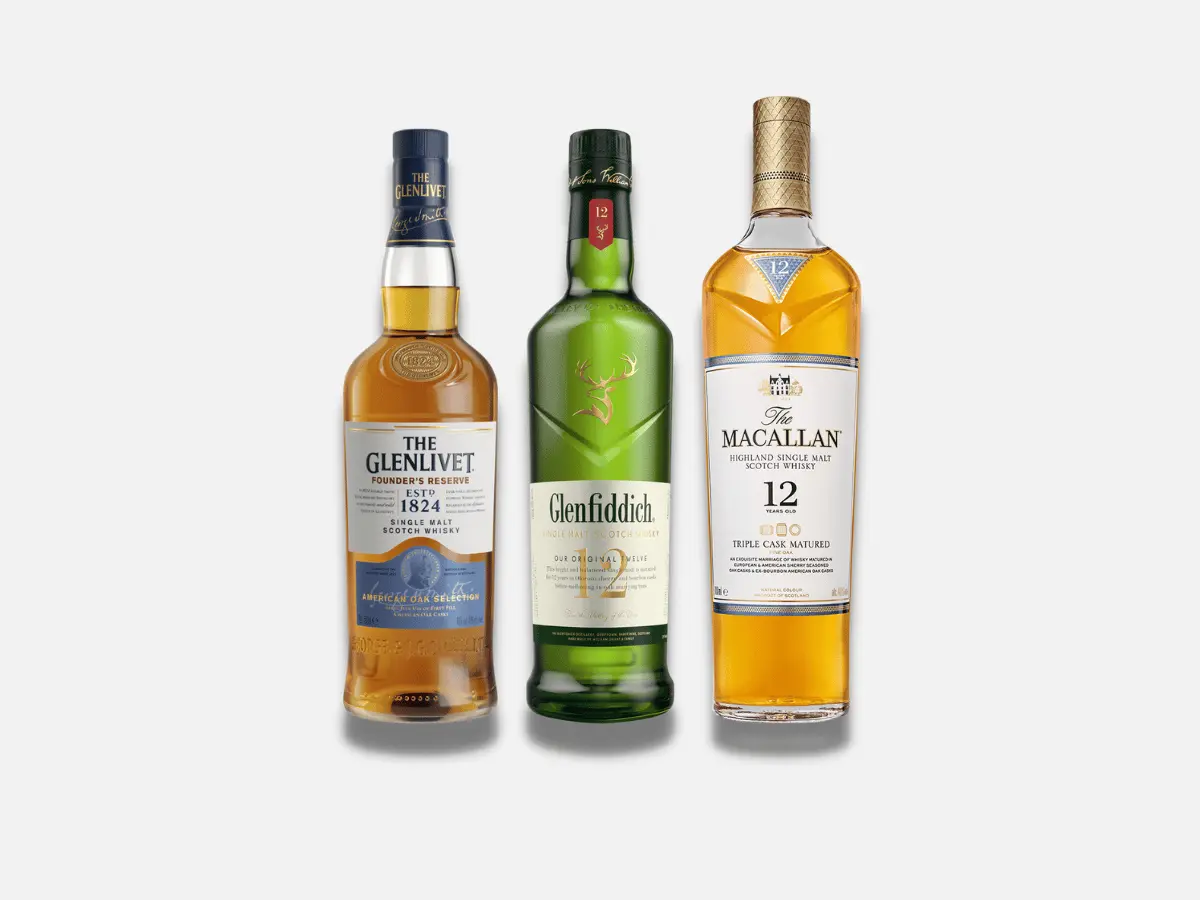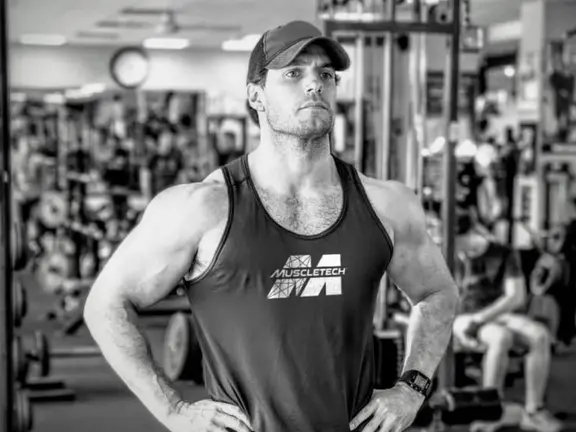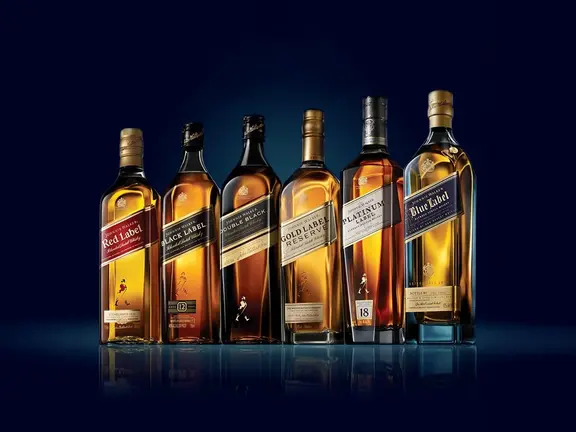
Published: Last Updated:
Readtime: 27 min
Every product is carefully selected by our editors and experts. If you buy from a link, we may earn a commission. Learn more. For more information on how we test products, click here.
When you’re searching for the best Scotch whisky you need to balance your flavour palate, price point, and availability to find that perfect dram. Thankfully, our team of editors and drinks expert Christopher Osburn are here to help you by personally testing multiple expressions before compiling a list of their favourites below. As the premier whisky publication in Australia, with more than 10 years of experience covering the industry, it’s safe to say we know a thing or two about whisky. If you’re looking to dip your toe into the world of Scotch for the first time and want to buy a top-quality dram this article is for you.
Best Scotch Whisky at a Glance
Highlights from our list:
- The best overall Scotch whisky: The Macallan 12 Year Old Sherry Oak Cask
- For peated whisky: Ardbeg 10 Year Old
- For value for money: Glen Moray 18 Year Old
- For single-malt: The Balvenie DoubleWood 12
- For blended: Johnnie Walker Blue Label
Now you’ve had a look at some of the favourites, let’s check out the complete list.
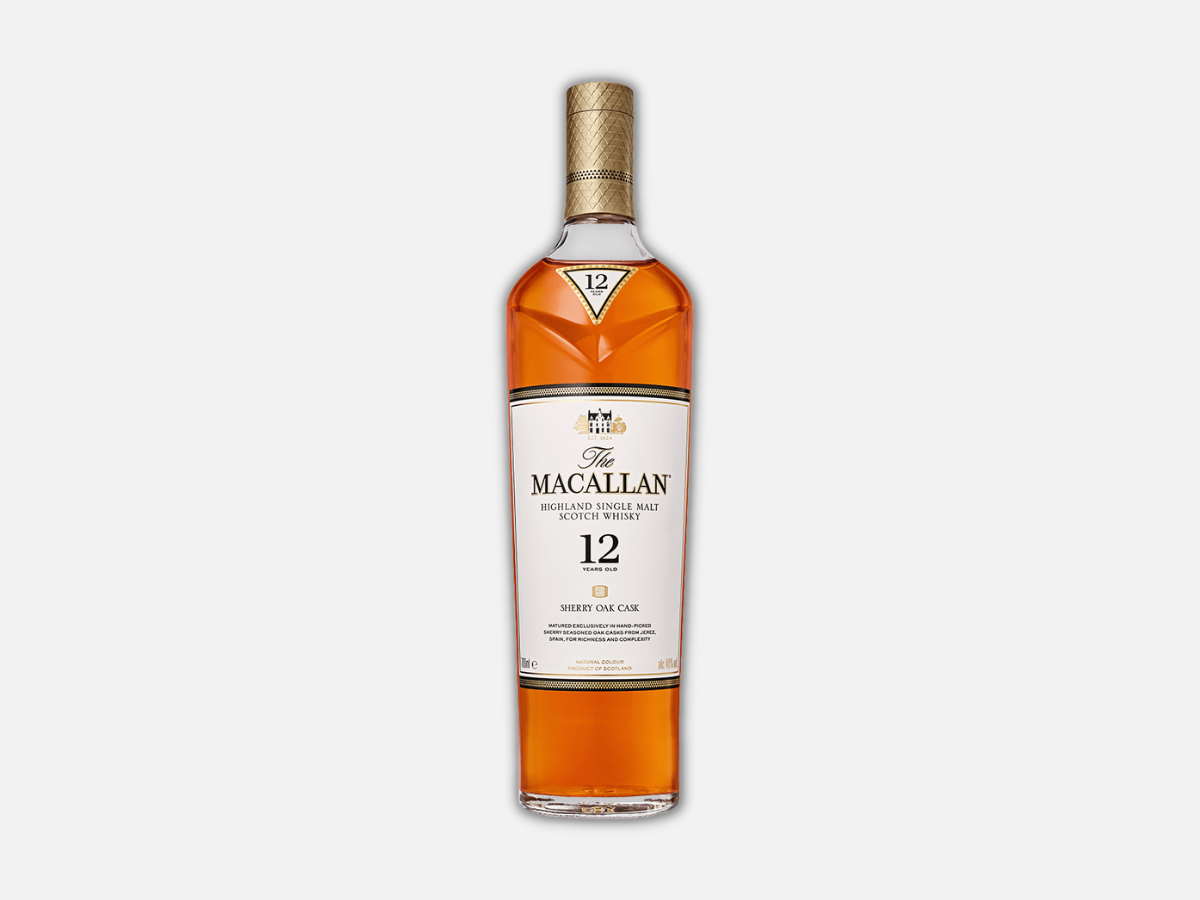
1. The Macallan 12-Year-Old Sherry Oak Cask
Price: from AU$139.99
| Pros | Cons |
| The definitive dram for all palates, special enough for a seasoned drinker while approachable for your beginners. This single malt is matured in sherry seasoned oak casks from Jerez for rich notes of dried fruit and candied citrus with a splash of oak. | With an ABV of 40-43%, it’s an approachable whisky albeit a little light on the palate for some seasoned drinkers. |
Sitting at the pointy end of our list of one of the all-time greats, The Macallan. About as close to smooth and balanced perfection as top-shelf Scotch Whisky can get, the brand has unique expressions up and down the price spectrum, but the 12-year-old Sherry Oak Cask is our overall favourite. That being said, we’ve also come to love the brand for its offshoot expressions, particularly their latest Harmony Collection, inspired by Arabica which we absolutely loved for its strong coffee flavours.
To explore this brand in full is to jump down a rabbit hole of limited-edition one-offs and special releases, so we’ll save you some trouble: If you want something special at a reasonable price point, start out with the 12-Year Sherry Oak Cask and work your way up from there to the 18-Year. If that’s too expensive, save up for a bottle of the 12-Year and enjoy all The Macallan greatness at a reasonable price.
Region: Speyside
Founded in: 1824
Best-known expression: 12-Year
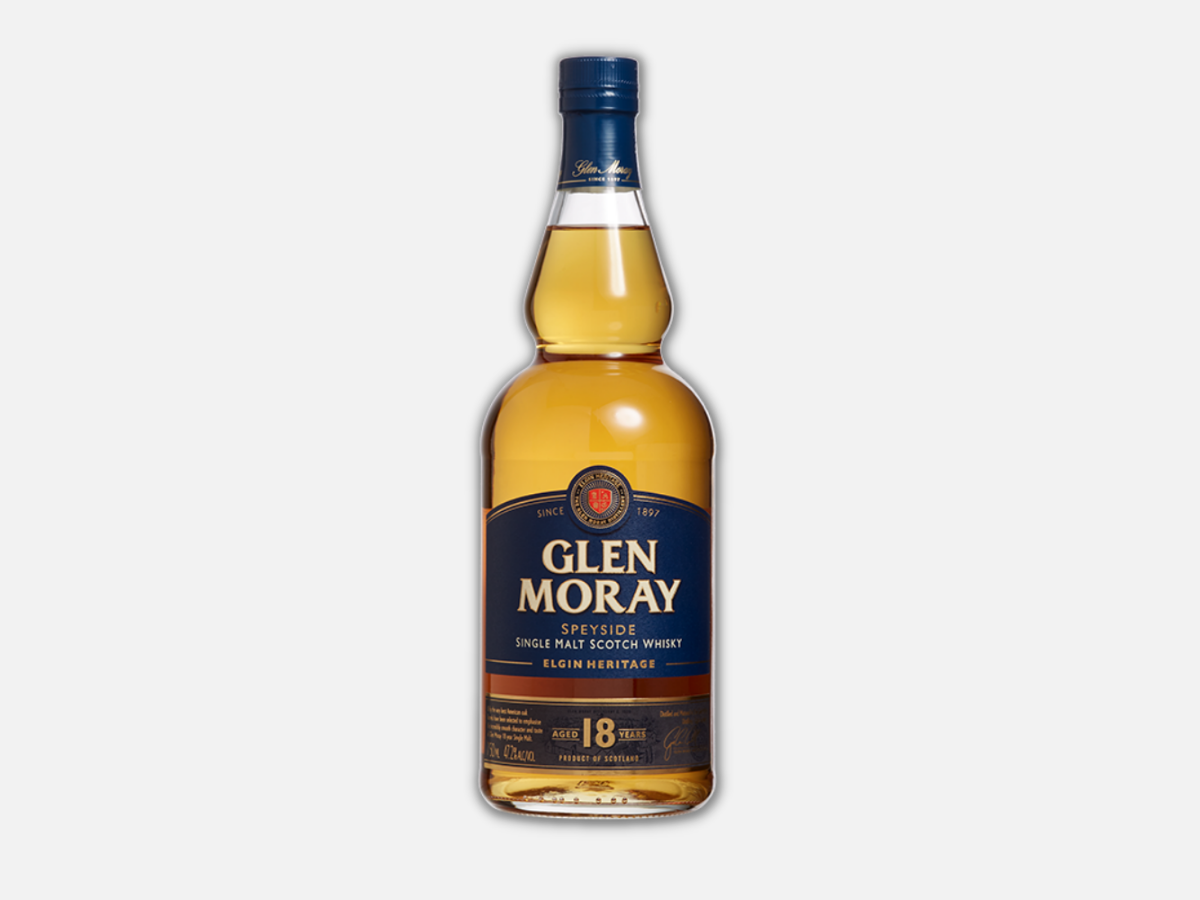
2. Glen Moray 18 Year Old
Price: from AU$129.00
| Pros | Cons |
| Affordable and perfectly balanced thanks to fine 100% 1st fill American oak that imparts vanilla, toasted wood, honey and tropical fruit. This unpeated whisky has a nice kick with a 47.2% ABV. | A traditional Speyside taste that suits every palate, if anything it’s a little ‘basic’ for your aficionados. The 25 year old is next-level. |
For a taste of classic Speyside Scotch, look no further than Glen Moray 18 Year Old. Located in one of Scotland’s oldest towns, the distillery has been crafting quality single malts on the banks of the River Lossie for over 120 years. Passion is fundamental to the operation and the resulting whisky imparts an impeccable sense of balance and consistency.
We asked expert Emma Cookson for her opinion on this affordable whisky, “Glen Moray 18 Year Old is a dram often overlooked because of its great price point, people often assume that it’s not good! But it’s one of the best single malts to get your hands on at an affordable price – thanks to some nifty purchasing discounts by the major chains. Fruity, floral, perfect for sipping neat or mixing in a cocktail, it’s a good age-statement whisky to have in the collection”.
Region: Speyside
Founded in: 1897
Best-known expression: Elgin Classic
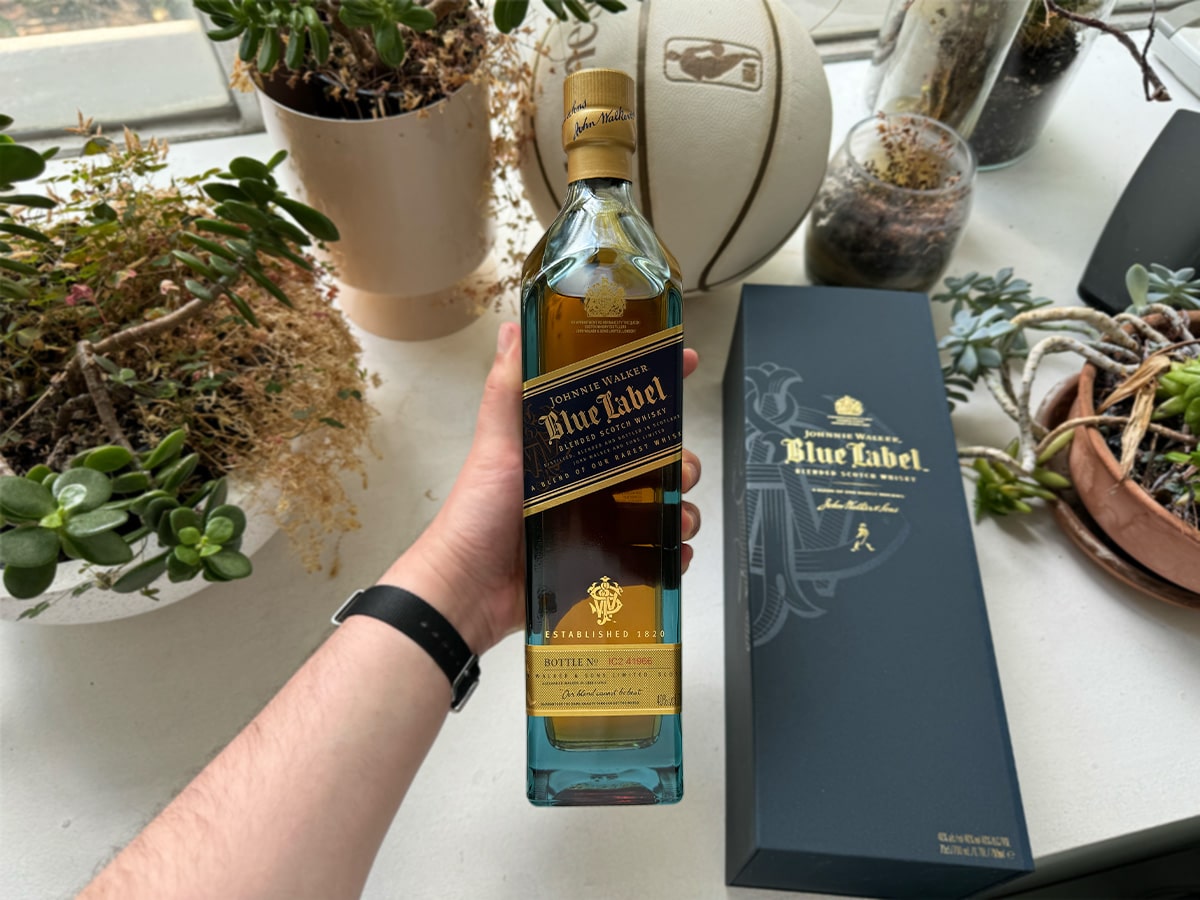
3. Johnnie Walker Blue Label
Price: from AU$239.95
| Pros | Cons |
| Three flavours dominate the palate: hazelnut, sherry and dark chocolate. However, it’s the hint of gentle smoke that shines through. | If you’ve never tasted smoke in whisky before this might catch you off guard, it’s slightly oily and not something for young palates. Not a great beginner’s whisky. |
What began as John Walker’s bootleg whisky operation eventually became the global behemoth it is today and the halo child is Blue Label. It was Walker’s sons who took the iconic brand into the stratosphere by way of premium blends, design, and clever marketing. Who can argue with the idea of breaking each unique blend down according to colour? At the top of the line is Johnnie Walker Blue, which might very well be the smoothest whisky you can buy for the money. That said, we’re more partial to the Black Label and Green Label given the price point.
Recently, the brand launched the Johnnie Walker Masters of Flavour Blended Whisky Aged 48 Years, the third instalment in its Master’s Series collection. An ode to former ‘Master Blender of the Year’ Jim Beveridge, who held the reins of the top brands for over 40 years, this stunning release captures some subtle smoke and rich flavours, but it won’t come cheap. This bad boy will set you back over $35,000 – not bad for a non-top-shelf brand, right?
Region: Speyside
Founded in: 1820 (though the brand didn’t create its first commercial blend until 1865).
Best-known expression: Red, Black and Blue Label
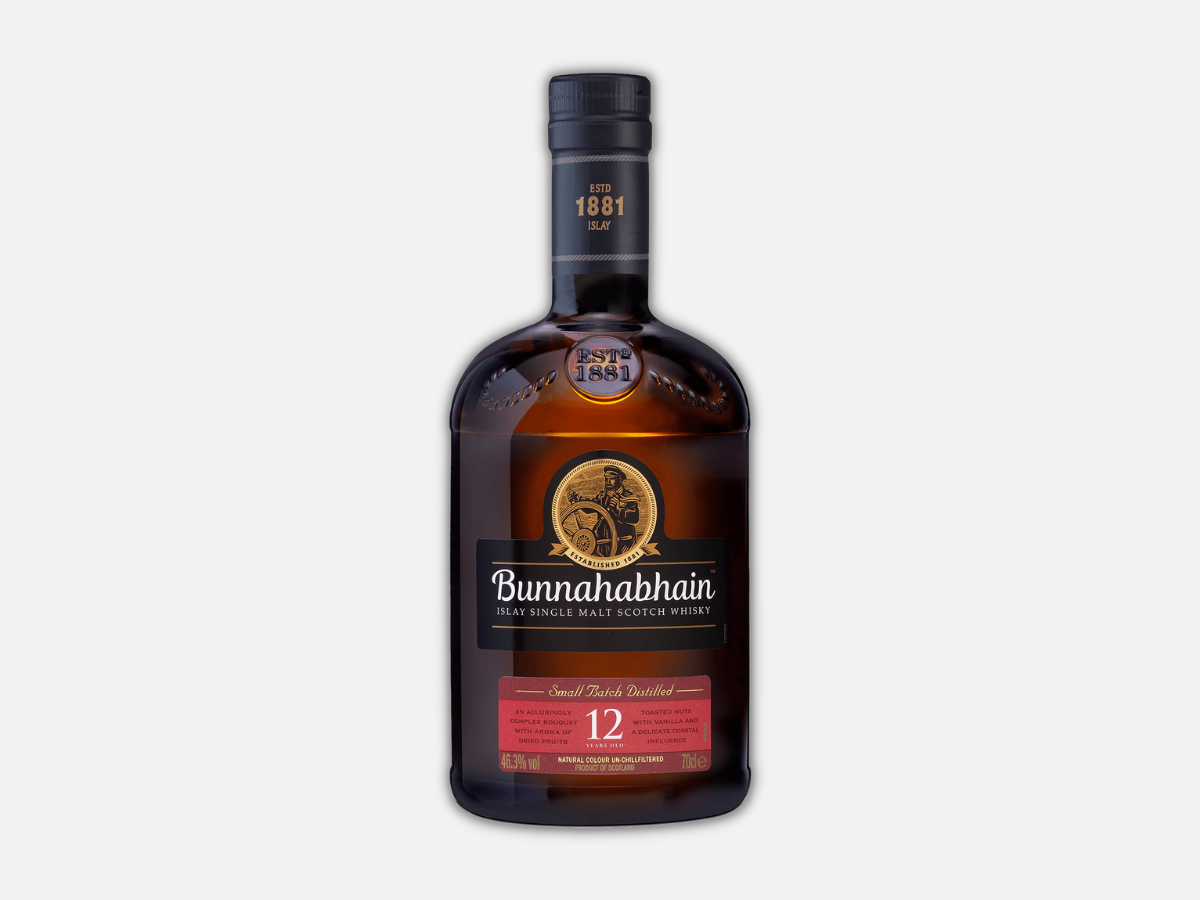
4. Bunnahabhain 12 Year Old
Price: from AU$109.95
| Pros | Cons |
| An Islay whisky that’s unpeated, un-chill filtered, and natural in colour for around $100? This is a great bottle to gift a friend with a hit of sherry balanced by salty coastal notes. Nice and spicy at 46.3%. | Hard to knock a cult-favourite like this, but if you’re looking for peaty Isaly notes look elsewhere as it’s missing the big smoky punch in the palate. |
While we’re still roaming around Islay, let’s stop at yet another one of the island’s relatively few active distilleries. In the game since 1881, Bunnahabhain (pronounced “boon-a-hav-en”) releases a modest selection of core statements alongside the occasional one-off. It’s also a favourite of whisky specialist Emma Cookson who describes the 12-year-old we’ve selected as a go-to option.
“If you’re a sweet tooth like me, then this has to go on your list. Don’t let the long Gaelic name fool you, this whisky is an iconic Islay single malt scotch whisky that is unpeated (not smoky) and because of its coastal location, the sweetness of the sherry-cask is offset by a lovely salty note making it complex but also quaffable. There’s a reason this is a cult favourite,” said whisky specialist Emma Cookson.
Region: Islay
Founded in: 1881
Best-known expression: 12 Year
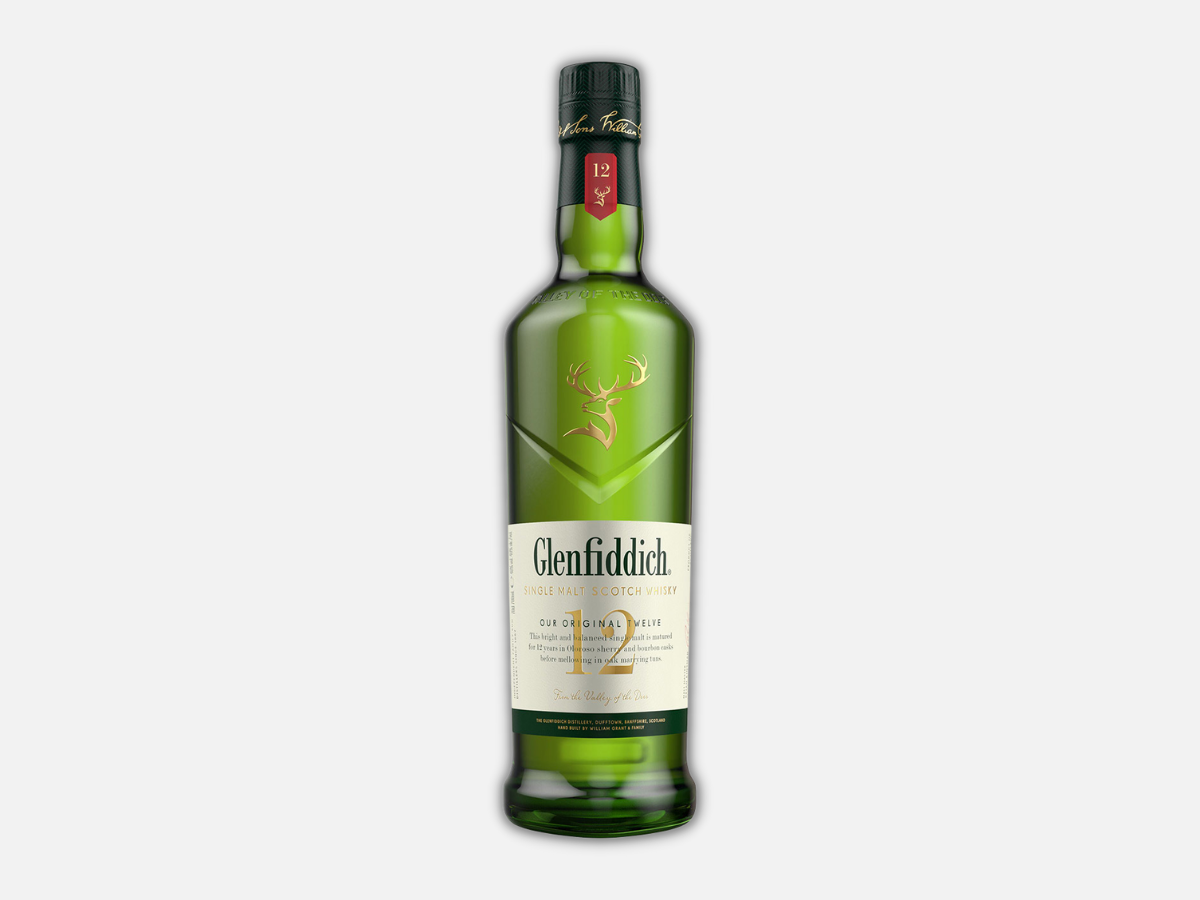
5. Glenfiddich Original 12 Year Old
Price: from AU$73.95
| Pros | Cons |
| Original 12 is often people’s first foray into Scotch and it’s a great dram filled with butterscotch, cream, malt and just enough oak to give a statement. If you want to go up a notch and try something different opt for our favourite, the 14 Year Old Bourbon Barrel Reserve. | The finish is a little bitter with hints of ethanol but remains pleasant. Nothing particularly special about it, just a good all-around flavour. |
If you don’t want to spend hours at the nearest liquor store, grab a bottle of Glenfiddich Original 12 and be done with it. Like some other names on the list, this is one of the best Scotch Whisky brands because it’s one of the most consistent, reliable, accessible, and affordable bottles you can buy. While you’ll likely find this brand in most bottle shops, that’s not to say it isn’t packed with impressive flavours. Glenfiddich has received more awards since 2000 than any other single malt Scotch whisky in two of the world’s most prestigious competitions; the International Wine & Spirit Competition and the International Spirits Challenge.
If you’re looking for something a little more special, the 14 Year Old Bourbon Barrel Reserve is our pick, namely because it is a genuine winner, bringing deep notes of caramel, oak, and spice.
Region: Speyside
Founded in: 1886
Best-known expression: 12 Year
Join Our Exclusive Community!
WINNER– Website of the Year, 2024
WINNER– Best Media Platform, 2023
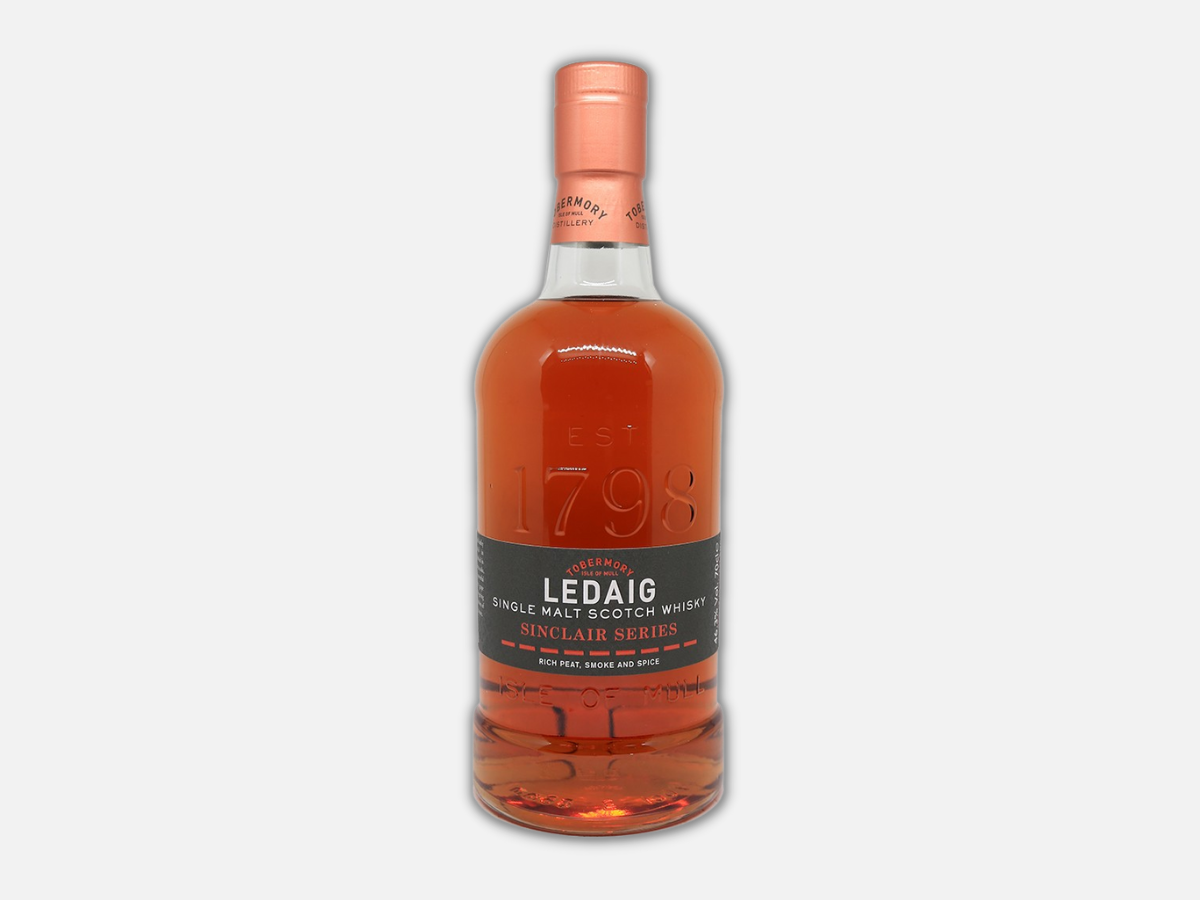
6. Tobermory Distillery Ledaig Sinclair Series
Price: from AU$99
| Pros | Cons |
| Affordable, peaty, smoky, balanced by Rioja red wine cask finish, it’s a powerhouse whisky that’s perfect for those who think they’ve tried everything. Not so peaty it knocks your socks off with smoke. | It’s an experimental bottle that pushes boundaries so it’s not suitable for everyone’s palate. The saltiness, smoke, and high ABV of 46.3% is a kicker. |
Tobermory Distillery isn’t the most popular name on the tip of everyone’s tongue, but no list of the best Scotch whiskies is complete without it. Whisky expert Emma Cookson says the Ledaig Sinclair Series (pronounced le-chay-g) is one of her favourites.
“Anyone who knows me knows that I would say Ledaig for all five if I could! This is one of my must-have whiskies. It’s from a small distillery on the Isle of Mull that most people have never even heard of and the name for their peated (smoky) expression is Ledaig. I love the approachable creaminess to it so that, paired with the Rioja red wine cask finish, it’s the perfect flavour profile for any season. It also doesn’t knock your socks off with the smokiness either, a great introduction into the style of peated whisky,” said whisky specialist Emma Cookson.
Owner: Burn Stewart (Distell)
Founded: 1798
Region / Headquarters location: Tobermory, Isle of Mull, Scotland
No. of stills: 4 Wash stills; 4 Spirit stills
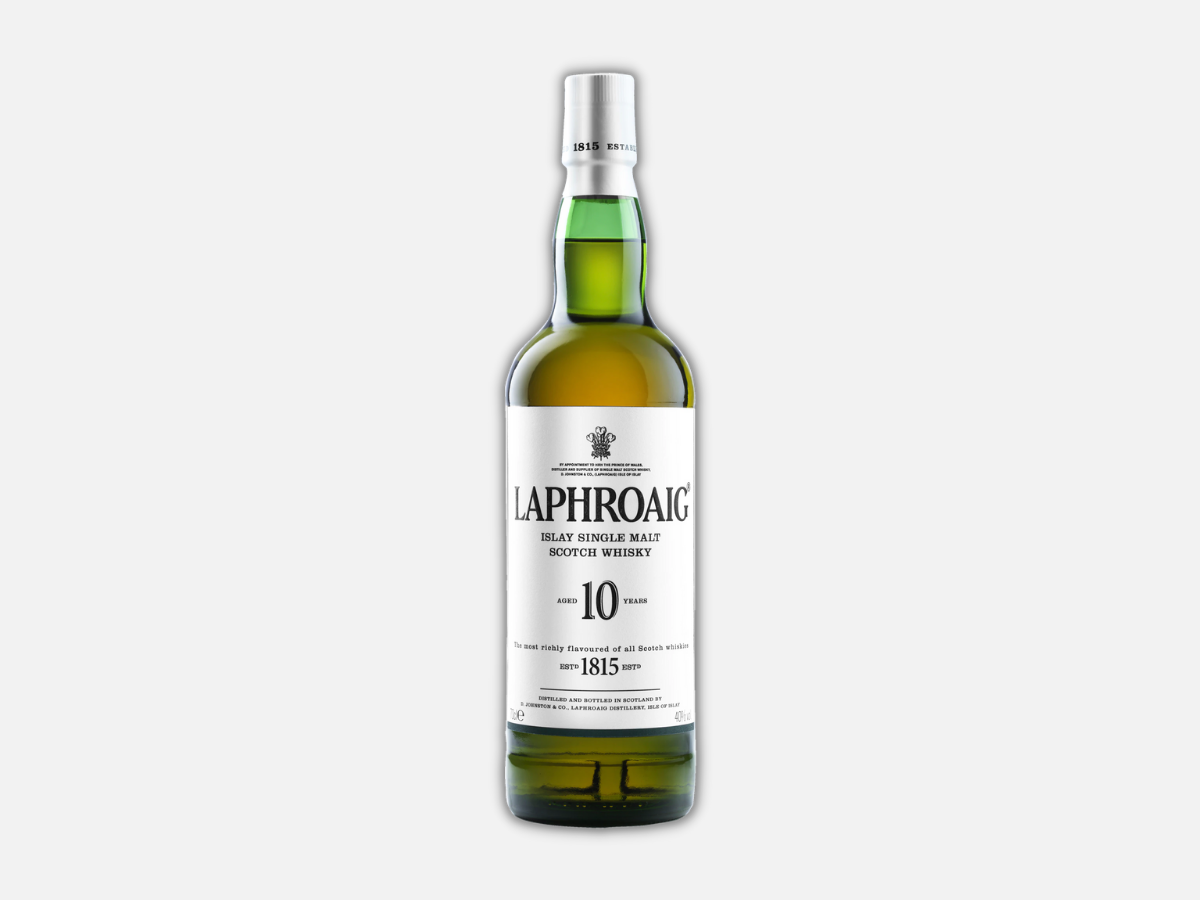
7. Laphroaig 10 Year Old
Price: from AU$99
| Pros | Cons |
| The kind of smoky peated whisky you need in your collection. Easy drinking, keeps things simple, doesn’t play any games with sweetness although you might find a hint of candied fruits and pear. | Again, this is a peated whisky so not something for every palate. Not a great beginner whisky, but something for those who want to experiment with the fun side of Scotch. |
Launched 1-year before Lagavulin was this similarly smoky and no less extraordinary neighbour. Far more versatile by comparison, Laphroaig consistently surprises with new releases and annual collaborations, but its benchmark expression is the mighty 10 Year that’s accessible and affordable. Think heavy peat, chocolate-covered espresso beans, and blasts of iodine and you’ll get the idea. To take those flavours up a few notches, snag a bottle of the 10-Year Cask Strength; it’s a personal favourite if you love heavy smoke.
Region: Islay
Founded in: 1815
Best-known expression: 10 Year
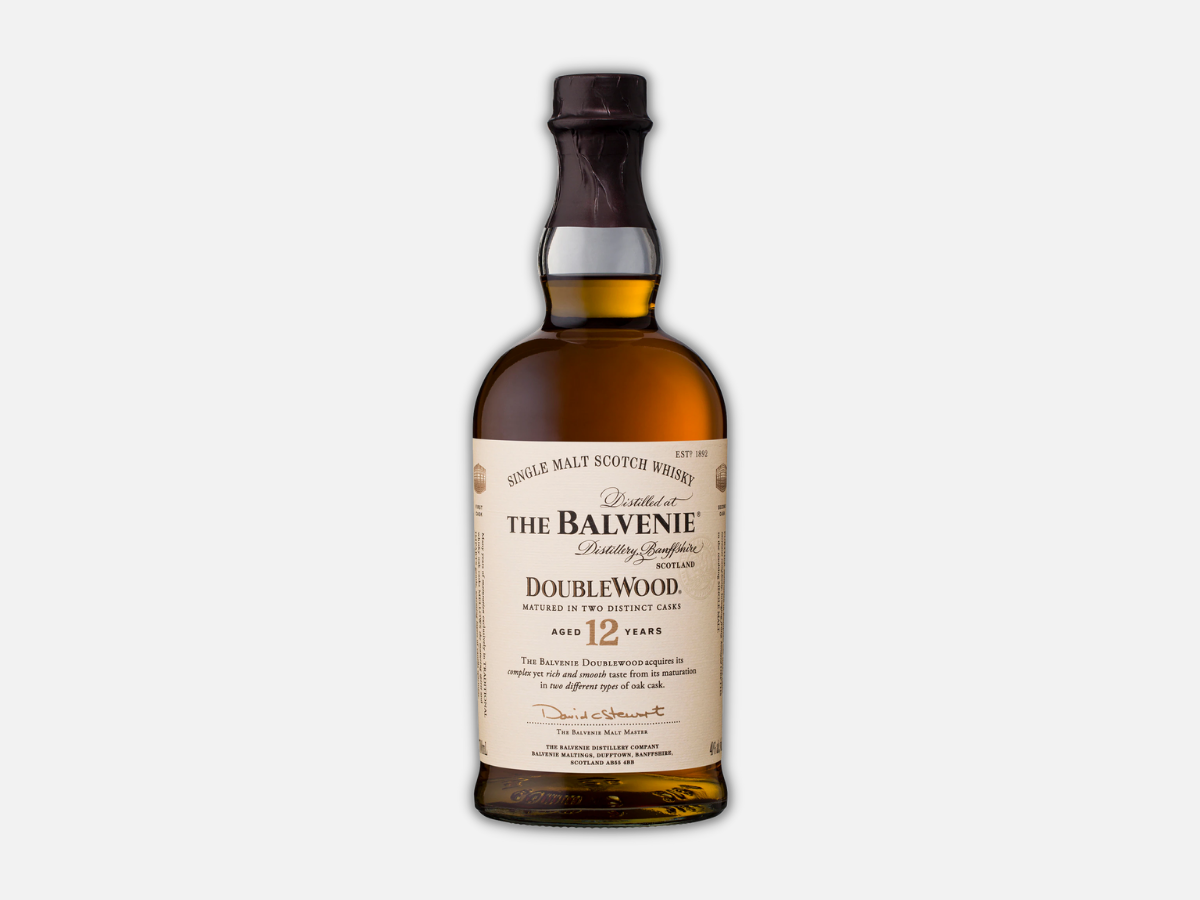
8. The Balvenie DoubleWood 12
Price: from AU$98
| Pros | Cons |
| Great example of a mid-range single malt Scotch whisky with a fine balance of honey, vanilla, spice, and underlying smoke. | Not a great option if you like to add water or ice as we found it to become quite rich in liqourice and anise, not our favourite flavours on the palate. |
Ask a passionate drinker what whisky you should buy and they’ll probably say The Balvenie DoubleWood 12 without a moment’s hesitation. A deft balancing act if there ever was one, this great entry-level dram balances classic notes of vanilla and spice with just a hint of smoke. Of course, it’s but one amongst several sippable stunners from this coveted brand, which makes everything on-site and isn’t afraid to experiment with wood.
Region: Speyside
Founded in: 1892
Best-known expression: DoubleWood 12
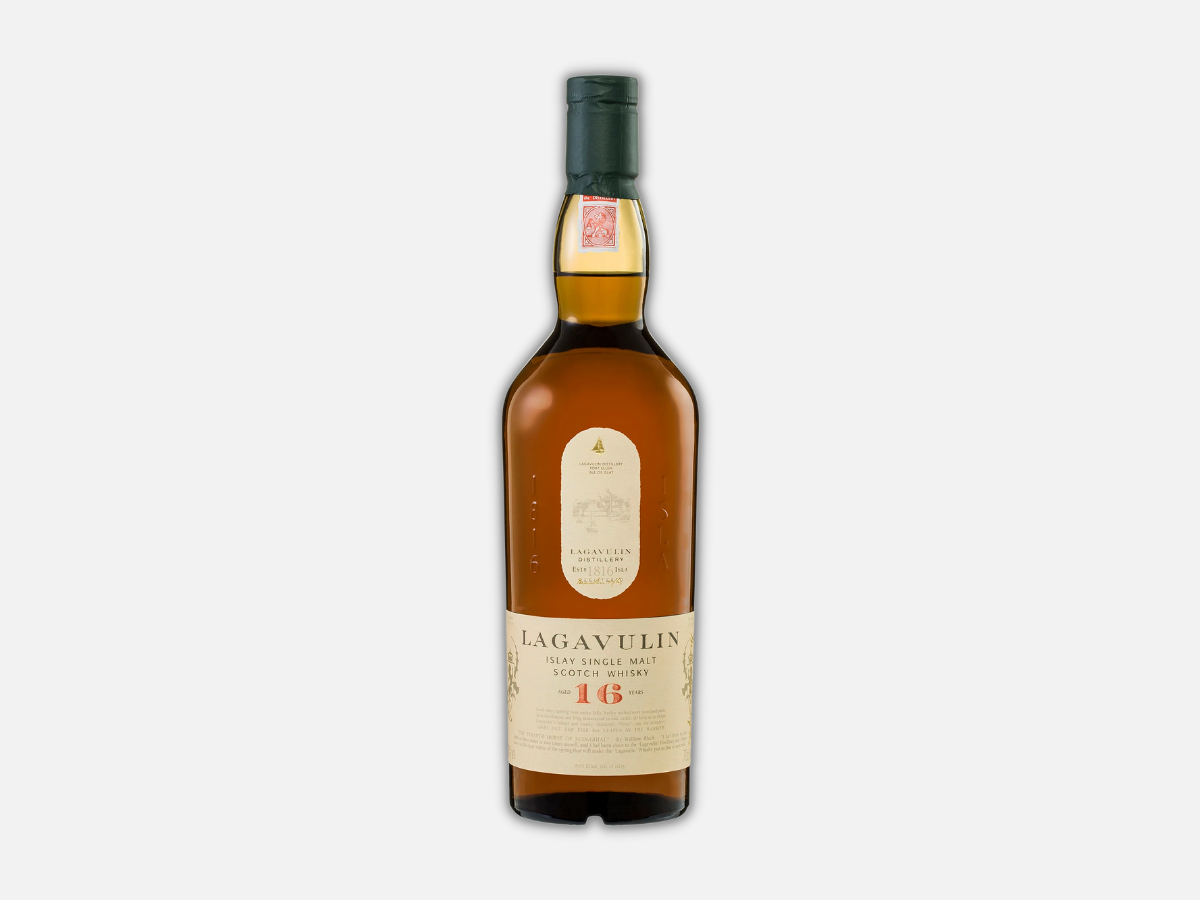
9. Lagavulin 16 Year Old
Price: from AU$159.99
| Pros | Cons |
| Like refined molasses melting over a bonfire, the 16 year old delivers palpable layers of sweet and pungent smoke. | If the idea of pungent smoke doesn’t tickle your fancy we’d avoid Lagavaulin. However, if you push through the barrier to entry your eyes will widen for the peaty stuff. |
The one, the only: Lagavulin. Popularised by actor Nick Offerman (who was recently honoured with his own release), this Islay-based distillery has mastered the art of single-malt Scotch whisky with plenty of smoke and peaty flavour. The 16 Year statement is quite simply the stuff of legend and one of the world’s best whiskies, presuming you have a penchant for the boggy stuff. More than a quality brand, we love the way Lagavulin awakens dormant taste buds.
Region: Islay
Founded in: 1816
Best-known expression: 16 Year
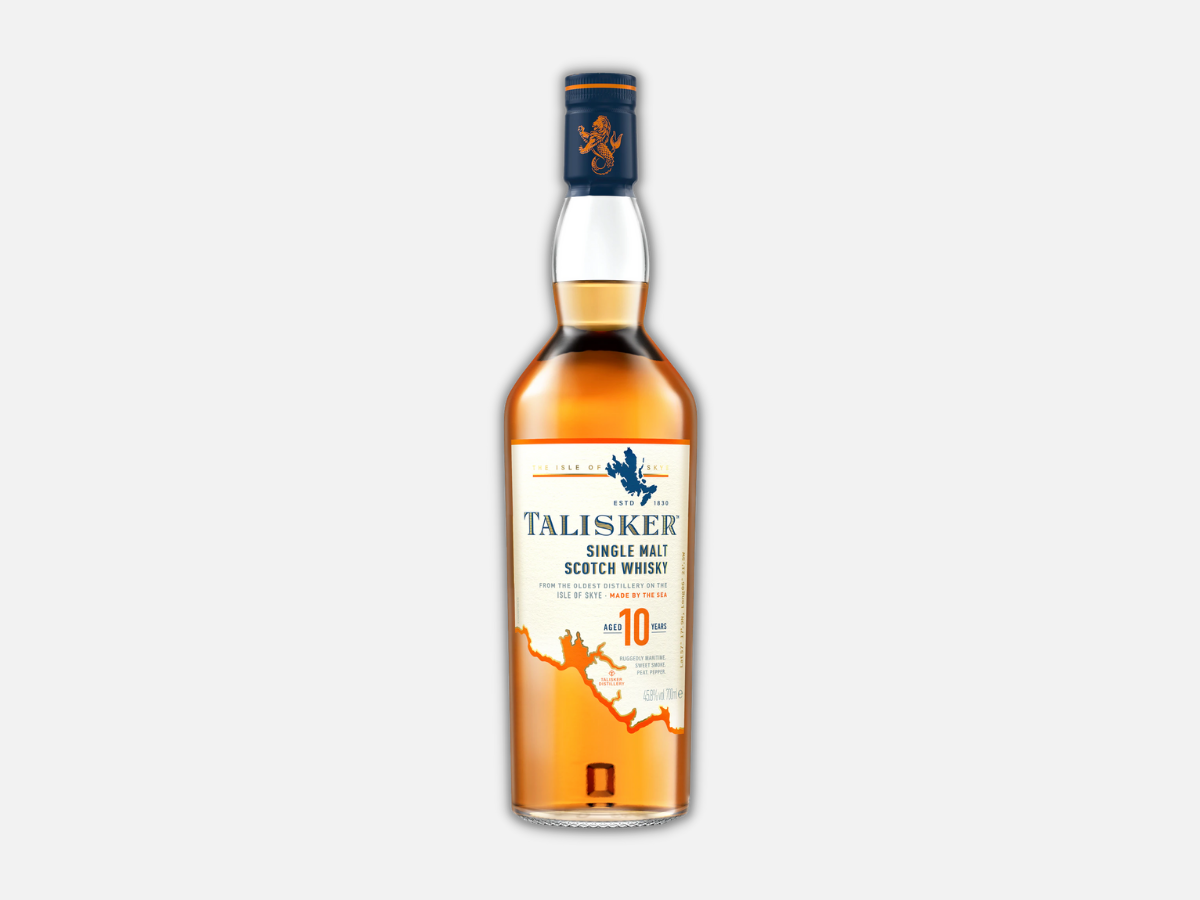
10. Talisker 10 Year Old
Price: from AU$89
| Pros | Cons |
| The peated expression that you’ll want to drink all day. It’s an award-winning expression that won Double Gold in 2015 but continues its run today with great colour and plenty of campfire morning smoke and coastal salt on the palate. | After nosing, the smoke dissolves a bit on the mid-palate before it returns to the finish. More expensive expressions e.g. 18 year old iron this out. |
Affordable single malt Scotch whisky doesn’t get more classic than the Talisker 10 Year, which unravels one layer at a time before trailing out on a peaty finish. It won a Double Gold Medal and “Best Single Malt Scotch Whisky up to 12 years” in the 2015 San Francisco World Spirits Competition and it’s remained in our drinks cabinet ever since. If the 10 year old isn’t enough, check out the acclaimed 18 year old, which was named the “Best Single Malt In The World” at the 2007 World Whiskies Awards and slams the palate with rich smoke and a mildly oily texture. No matter which expression you try, you’ll probably smack your lips and say, “damn, that’s a good dram!”
Region: Isle of Skye
Founded in: 1830
Best-known expression: 10 Year Old
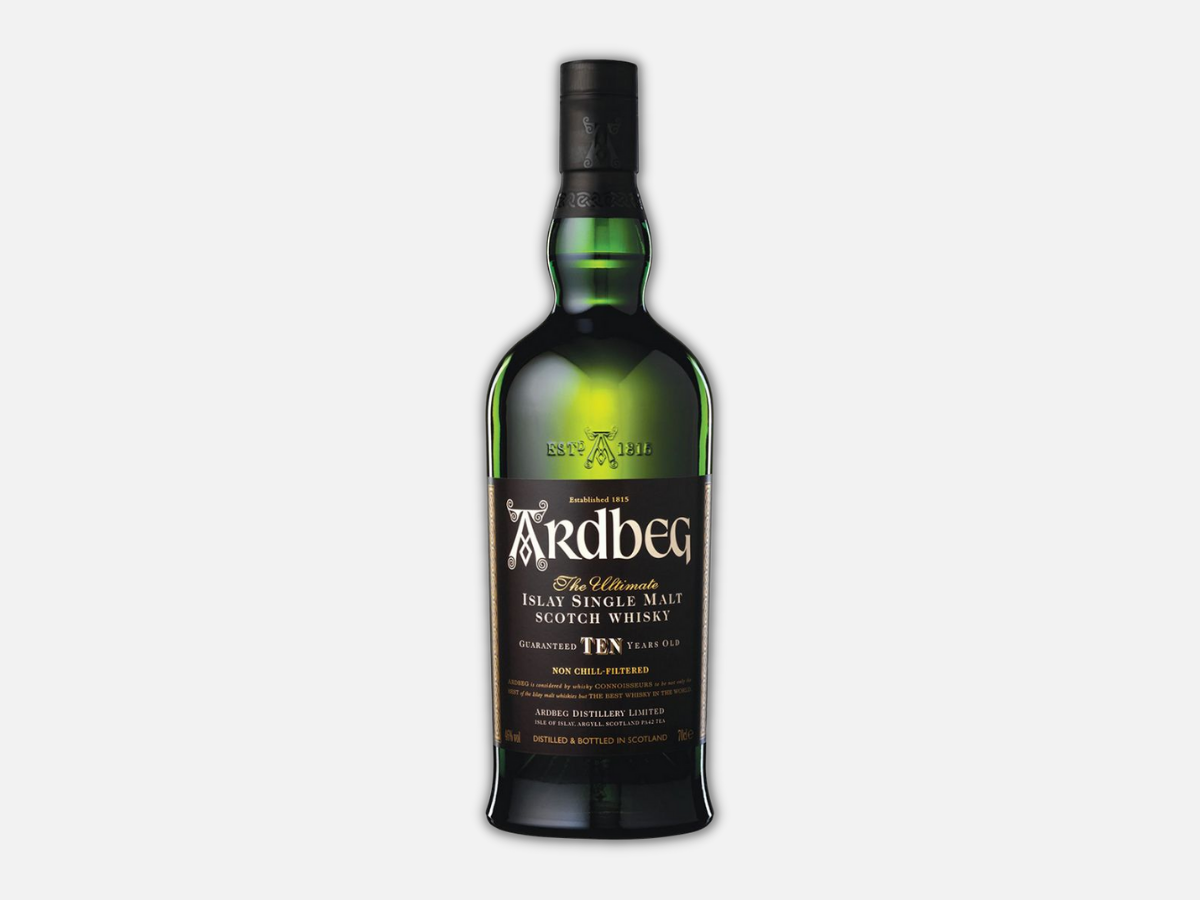
11. Ardbeg 10 Year Old
Price: from AU$99.95
| Pros | Cons |
| Smoky and peaty the Ardbeg 10 Year Old is like sucking on a chimney. It’s also very affordable so you won’t be thinking about the price while you drink it. Flavours of vanilla shine through, balanced by zesty lemon and lime. | Big smoke. This non-chill filtered dram is raw and punchy for the palates that demand a proper spanking. If that doesn’t sound like your idea of fun, we’d look at a sherry cask. |
Call us biased, but we just can’t get enough of that peaty Islay malt. Should you agree, then surely you’ll want to check out Ardbeg and its wondrous array of expressions. The brand has been plying its craft for over 200 years, with some downright timeless flavours to show for it such as the popular 10-Year, which is kind of like sucking on a chimney…in a good way, of course. Meanwhile, no two sips of Ardbeg Uigeadail are the same if your budget permits.
“Over 200 years old and as iconic as they come, the brand very nearly didn’t make it through the ’90s before Glenmorangie acquired the distillery and resumed full production,” whisky expert Aaron Shuttleworth explains. With a cult global following called the Ardbeg Committee which helps shape weird and wonderful releases like Ardbeg, Arrrrrrdbeg and Gallileo (commemorating Ardbeg that was shot into space), the whisky is some of the most coveted and unique in the world.
Region: Islay
Founded in: 1815
Best-known expression: 10 Year
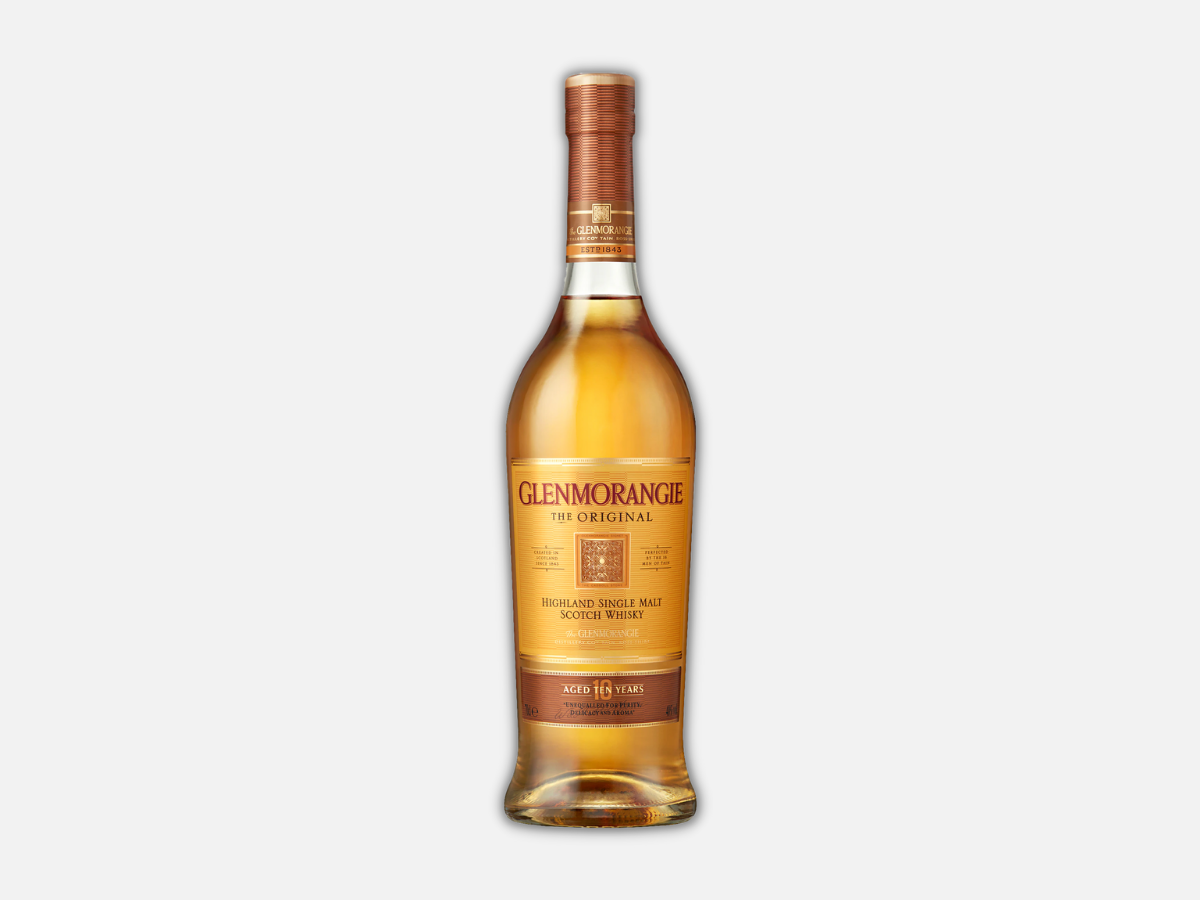
12. Glenmorangie The Original 10 Year Old
Price: from AU$75
| Pros | Cons |
| Mellow and delicate, Glenmorangie The Original 10 is the definitive Scotch whisky with classic flavours of vanilla due to the American ex-bourbon casks. The kind of whisky you want to come home to every day, there’s a lack of smoke which works for all palates. | Far from the most sophisticated whisky on our list, but a quintessential option nonetheless. You can always use this in a cocktail or with a mixer if you don’t like it neat due to the affordable price-point. |
For over three decades, Glenmorangie’s Original 10 Year has been the most popular single malt Scotch whisky in all of the land (where they know a thing or two about whisky). Combine that with the brand’s endless slate of awards and you have a spirit that sells itself. The Original also serves as the base whisky for a variety of finishing programs, yielding rich expressions like Quinta Ruban and Lasanta. In terms of flavours, you’ll love the delicacy of this affordable dram. A representation of classic Scotch if there ever was one, the flavours of orange, creamy vanilla, and fruity hits of peach.
Region: Highland
Founded in: 1843
Best-known expression: The Original 10 Year
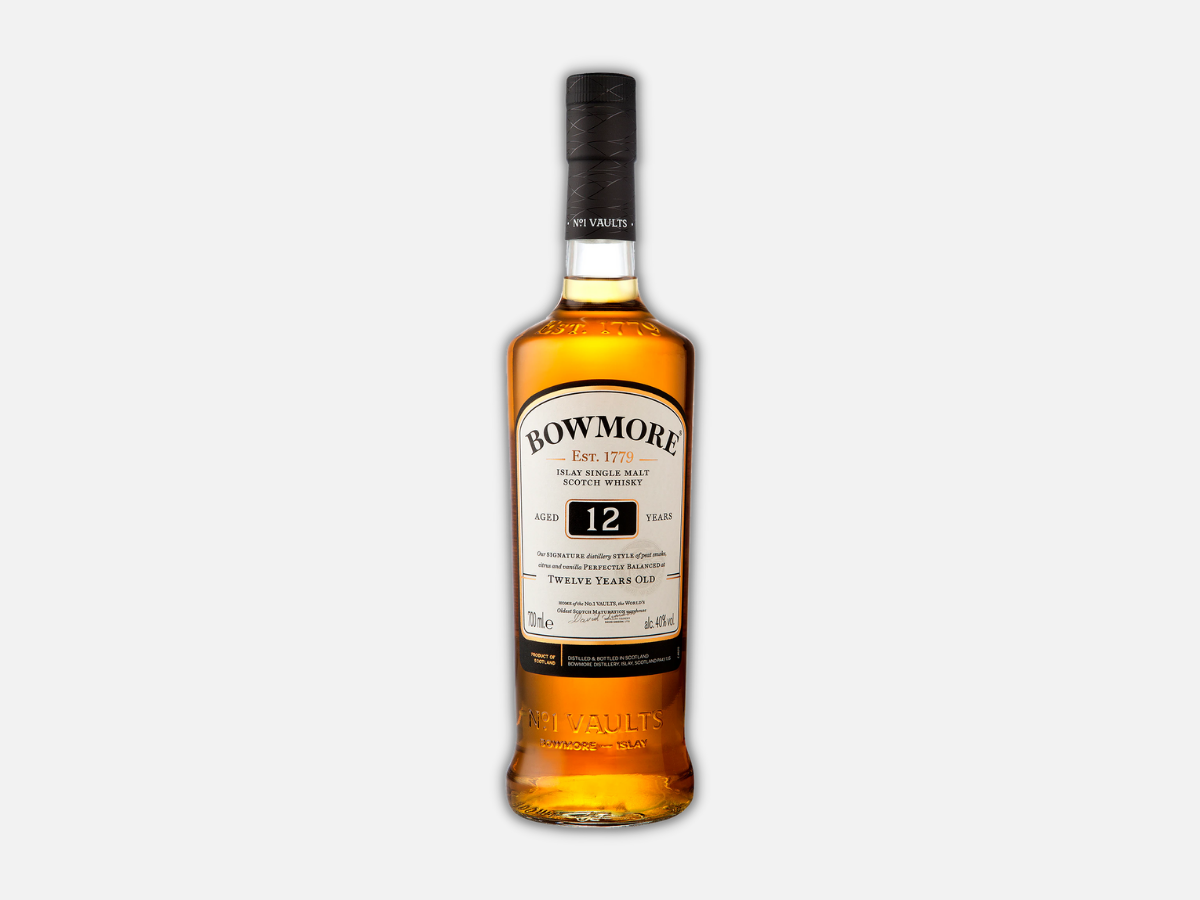
13. Bowmore 12 Year Old
Price: from AU$89.99
| Pros | Cons |
| Another great peaty number with a distinct dark flavour profile that oozes coastal smoke. Think honey on the palate before oily sweetness and a pop of ash, grass, and citrus. | If we had to be critical, there’s a floral undertone of bergamot that comes across on the nose. It doesn’t follow through on the palate as much, but we’d love it if it did. |
We’re going back to Islay, to Islay, to Islay… we’re going back to Islay because that’s where you’ll find Bowmore, i.e. another one of the best Scotch whiskies to drink. The flagship 12 Year is certainly nothing to scoff at, nor is the palatable mix of salt, vanilla, chocolate, and soft smoke that you’ll love. On the far opposite side of the spectrum is the ultra-rare Bowmore 31-Year-Old, which must be tasted to be believed. And by that, we mean we don’t believe we’ll ever get to taste it considering the nearly $6,000 price tag.
Region: Islay
Founded in: 1779
Best-known expression: 12 Year
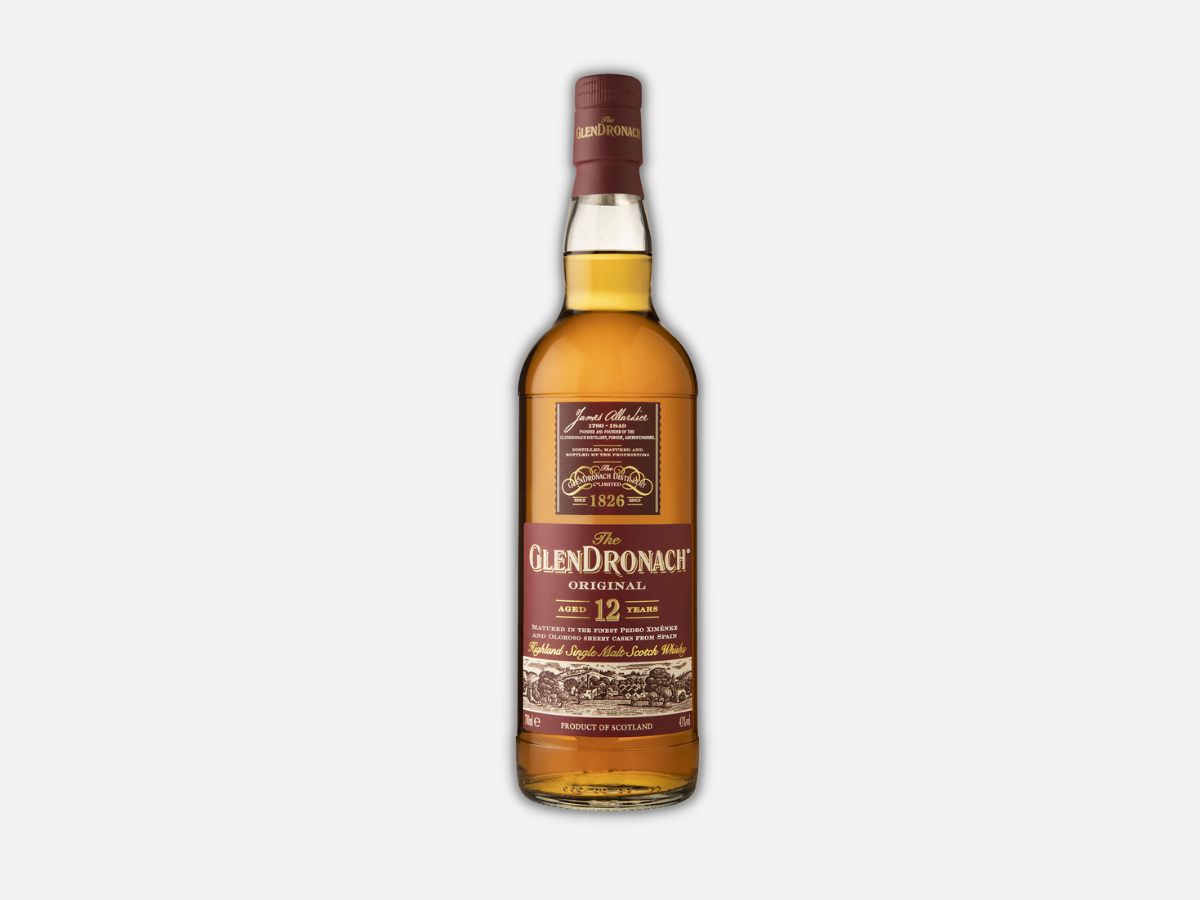
14. The GlenDronach Original 12 Year Old
Price: from AU$
| Pros | Cons |
| Rich and full of sherry thanks to the Oloroso and Pedro Ximenez ex-sherry casks. We’ve always said sherry-leaning whiskies are best for beginner palates and this dram does just that. | The step up to GlenDronach 15 is substantial in both flavours and price, but probably worth the extra money for an experienced enthusiast. |
One look at the rich red colour of The Glendronach Original 12 Year and you’ve already got sherry on your mind. Unsurprisingly, the whisky is matured by combining Oloroso and Pedro Ximenez ex-sherry casks, paving the way for luscious colour and taste alike. When only the biggest flavour explosion will suffice, accept nothing less than The GlenDronach Parliament 21-Year-Old. That said, the privilege will cost you.
Region: Highland
Founded in: 1826
Best-known expression: The Original 12 Year
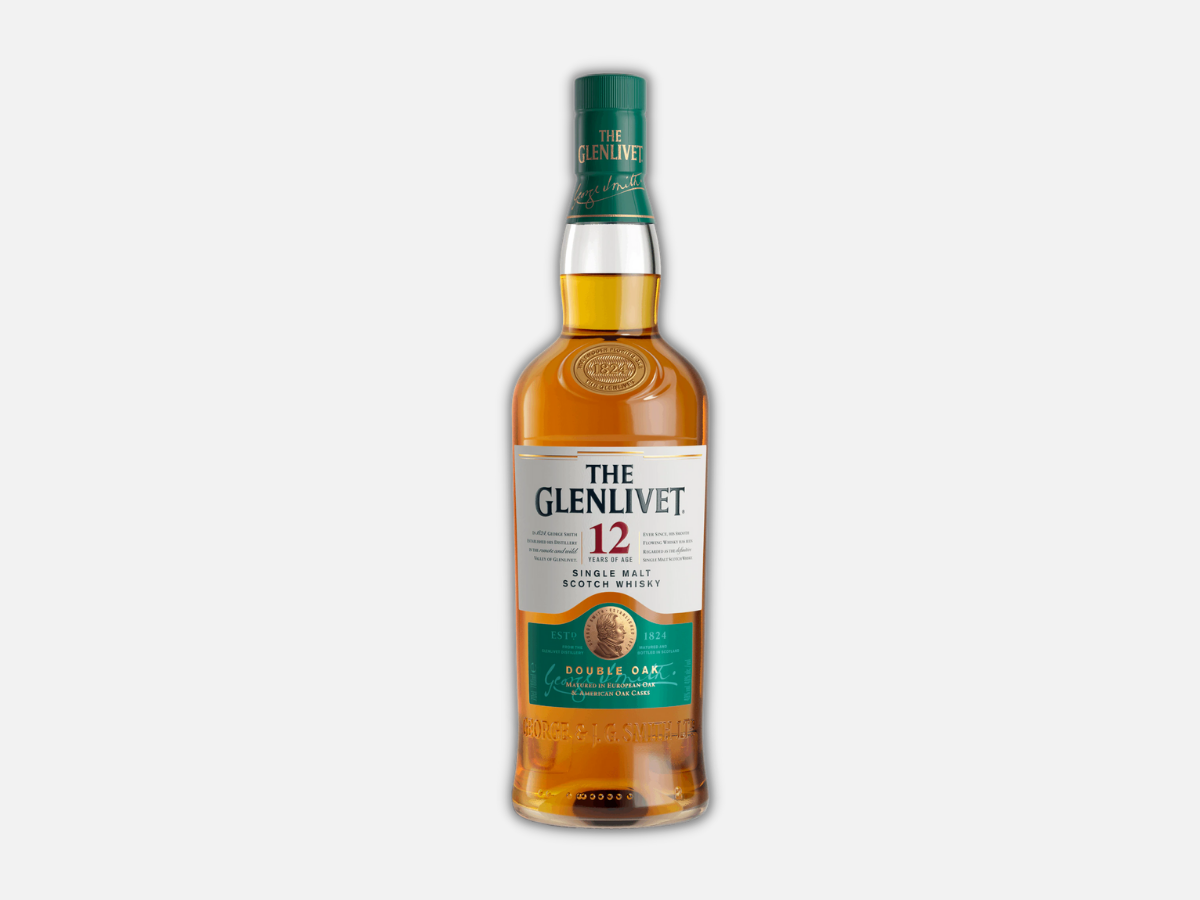
15. The Glenlivet 12 Year Old
Price: from AU$80
| Pros | Cons |
| Smooth as it gets for a 12 year old single malt Scotch whisky thanks to the double oak. First, the brand matures it in traditional oak, before finishing in American oak casks and the result is vanilla heaven. | There’s a strong citrus notes undertone with pineapple on the palate that catches you off guard. Not necessarily in a bad way but it’s not as special or sophisticated as the more expensive options on our list. Still, great value for money. |
Since first launching in 1824, The Glenlivet has ceased operations just once throughout its lifespan and that was for a little event called WWII. Bigger now than ever before, it’s the second-best-selling single malt Scotch whisky brand in the world (first place goes to Glenfiddich). Its core range is anchored by some straightforward sippers, namely the 12-Year and the Founder’s Reserve. We’re personally more partial to the 18 Year or the Nadurra 16 Year, the latter of which is bottled at cask strength.
Region: Speyside
Founded in: 1824
Best-known expression: 12 Year
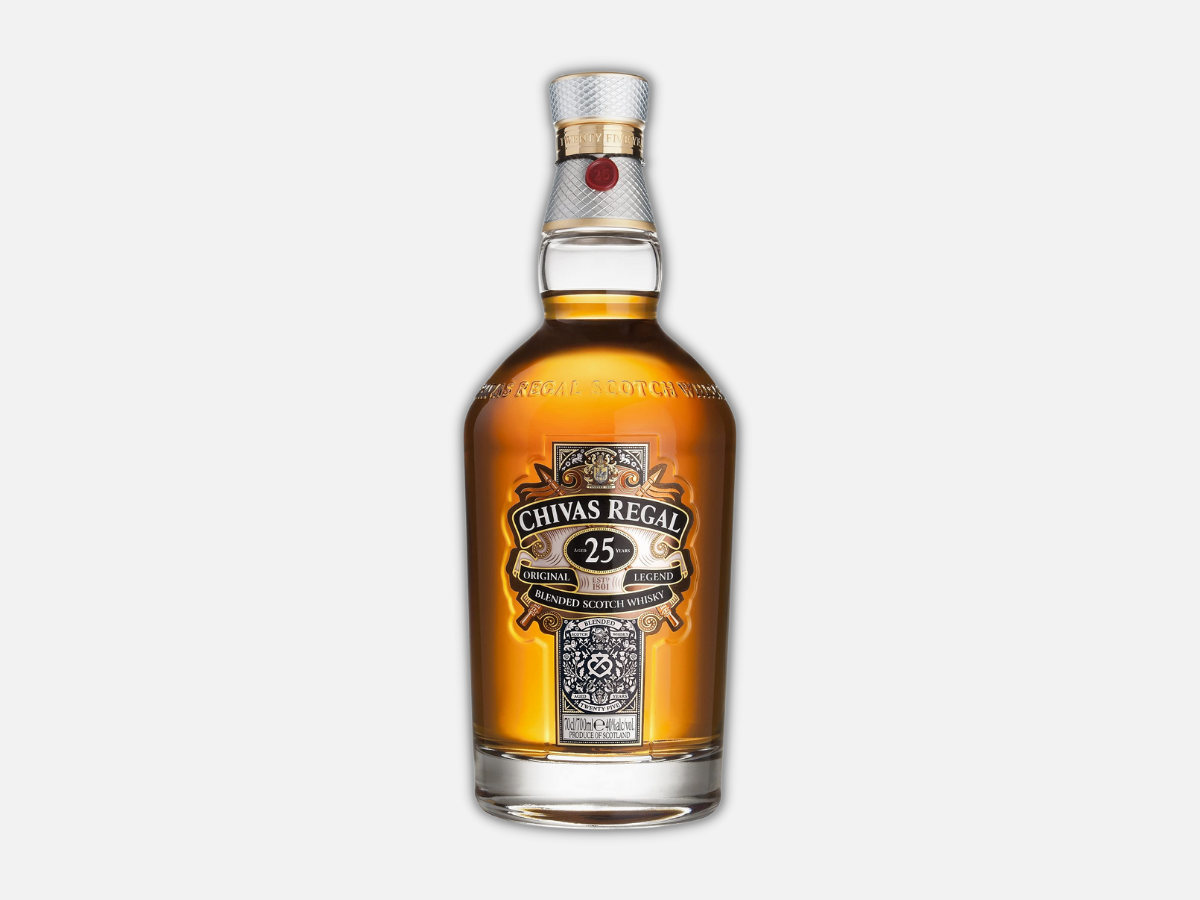
16. Chivas Regal 25 Year Old
Price: from AU$580
| Pros | Cons |
| This could be the king of blends. A welcome change from the traditional Johnnie Walker Blue Label this adds grain to the mix for nutty and thick berries and oats. If you’ve ever had Uncle Tobys fruit oats, this is it in a bottle, aged for a quarter century. | Expensive. Some would scoff at the idea of spending around $500 on a blended whisky but we think of it more of a halo on the whole single malt movement. Maybe even a middle finger. |
Given the domination of single-malt Scotch whisky on our list of the best, let’s make way for this renowned blender. Several of Chivas Regal’s top-shelf entries have taken home major awards, including Gold and Double Gold in the San Francisco World Spirits Competition. While we’d never refuse a glass of the 12 Year, it’s the 25 Year or the Regal XV we’re after.
Region: Speyside
Founded in: 1801
Best-known expressions: 12-year-old, 15 years old, 18-year-old, 25-year-old
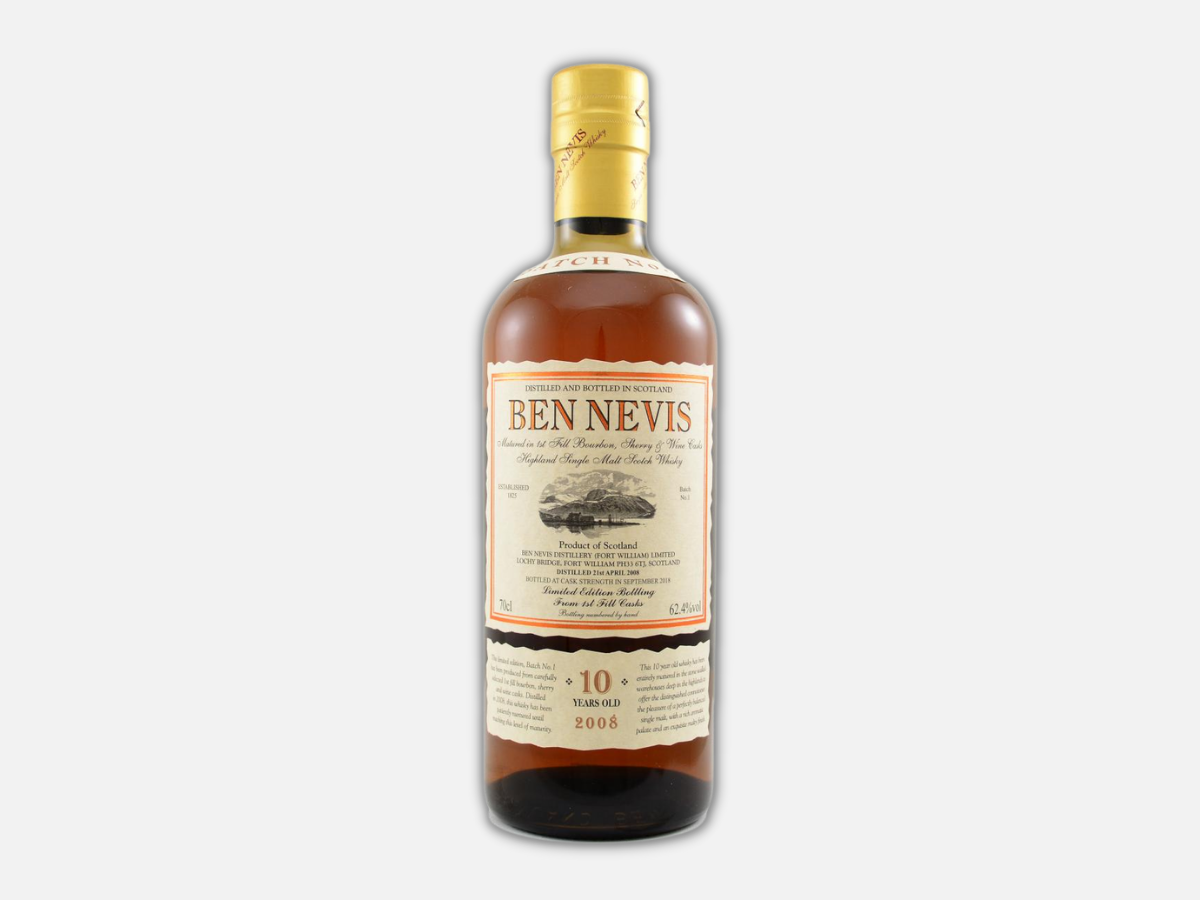
17. Ben Nevis 10 Year Old
Price: from AU$129.99
| Pros | Cons |
| A whisky so good it’s almost become extinct due to stock shortages. If you can get your hands on a bottle you’ll find delicious notes of popcorn and salted caramel. Proper mouth-watering stuff. | Stock shortages have driven the price up on the secondary market making this a very expensive 10 year old whisky, albeit a great one. |
If you’ve never heard of Ben Nevis, you’re not alone because this brand flies under the radar with some of the best Scotch we’ve ever tasted. Our expert Emma Cookson thinks you’ll love this brand because it’s rare, full of untapped flavours, and comes in at a fair price point.
“A tricky one to find nowadays since it has been (allegedly) discontinued thanks to stock shortages, hopefully, one day it will return to the mainstream. Ben Nevis is a great distillery known for a toffee apple and salted popcorn flavour profile and this whisky is no exception. Beloved by whisky drinkers all over the world, I’ll be sad to see my remaining bottle become empty.”
Address: Lochy Bridge, Fort William PH33 6TJ, United Kingdom
Owner: Nikka Whisky Distilling
Region: Highland
Founded: 1825
Age(s): 10-year-old
Water source: Allt a’Mhuilinn
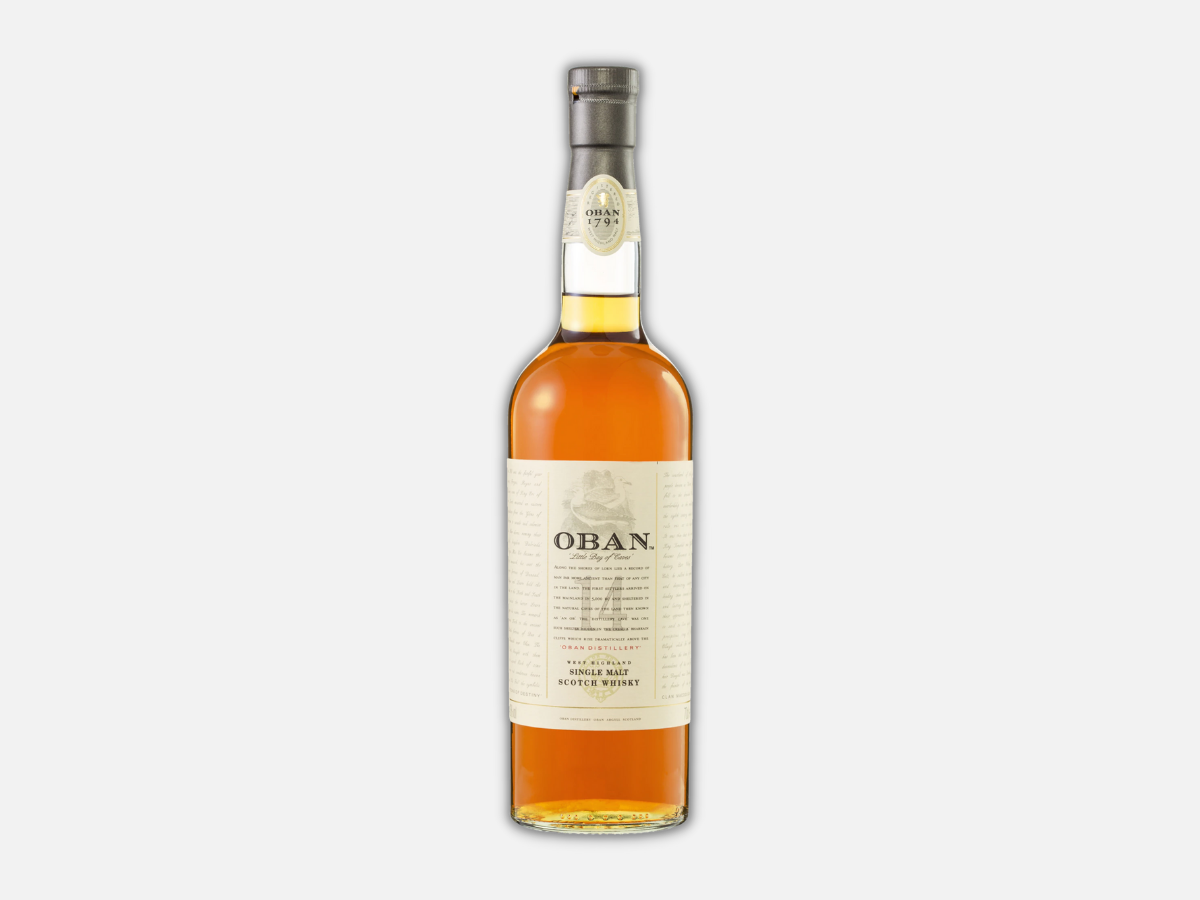
18. Oban 14 Year Old
Price: from AU$130
| Pros | Cons |
| While it uses worm tubs, Oban manages to find lightness by using long fermentation periods. The result is a quality woody, quick finishing whisky, that offers bitter oak. | Not particularly sophisticated, but a great option when you want to try something different. As such, we’d only recommend it to experimental drinkers and enthusiasts. |
Located in the Scottish west coast port of Oban is this distillery of the same name, which takes direct inspiration from the local maritime climate. The 21-Year Cask Strength is worthy of your bucket list, but in the meantime, you’ll have to settle for the brand’s popular 14-Year or Little Bay expressions as they’re very accessible and affordable. Both are dried with peat and the 14 Year delivers plenty of smoke.
Region: Highland
Founded in: 1794
Best-known expression: 14 Year
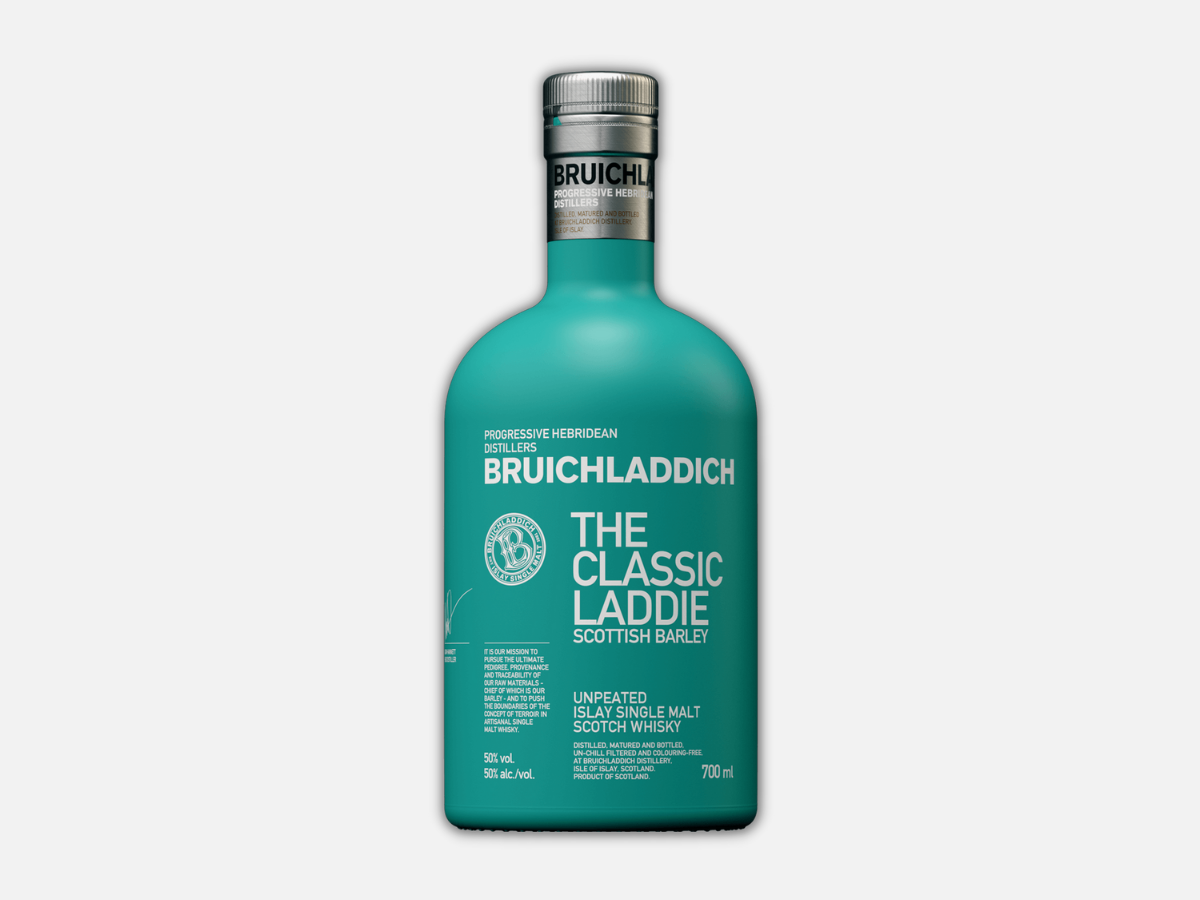
19. Bruichladdich The Classic Laddie
Price: from AU$105
| Pros | Cons |
| Made from 100% Scottish barley, trickle distilled, then matured for its entire life in premium American oak the flavour palate is a stand-out with honey, butter, and peach. Of course, the 50% ABV is spicy on the nose and finish. | While it remains unpeated there’s a hint of smokiness on the finish that seems a touch out of place. That being said, it’s a great entry point for smoke and peat in developing your palate. |
Under the supervision of legendary Master Distiller Jim McEwan, this Islay-based brand underwent a complete overhaul back in 2001. Total transparency and several fantastic releases (of both the peated and non-peated variety) would soon follow. That includes the iconic Black Art series, which is supremely high in quality and price alike. For those who don’t have hundreds of dollars to spend on alcohol, the Port Charlotte or Classic Laddie we’ve selected here makes for a solid starting point.
“Revived by the visionary that is Mark Reynier (now behind the equally great Irish whisky ‘Waterford’), Bruichladdich has single-handedly brought back barley production to Islay through Reynier’s vision of terroir and provenance, now carried on by new owners Remy Cointreau,” Scotch expert Aaron Shuttleworth tells us. “Under their three distinctive brands of Bruichladdich (non-peated), Port Charlotte (heavily peated) and Octomore (very heavily peated), the distillery is innovative, fun and a breath of fresh air.”
Region: Islay
Founded in: 1881
Best-known expression: The Classic Laddie
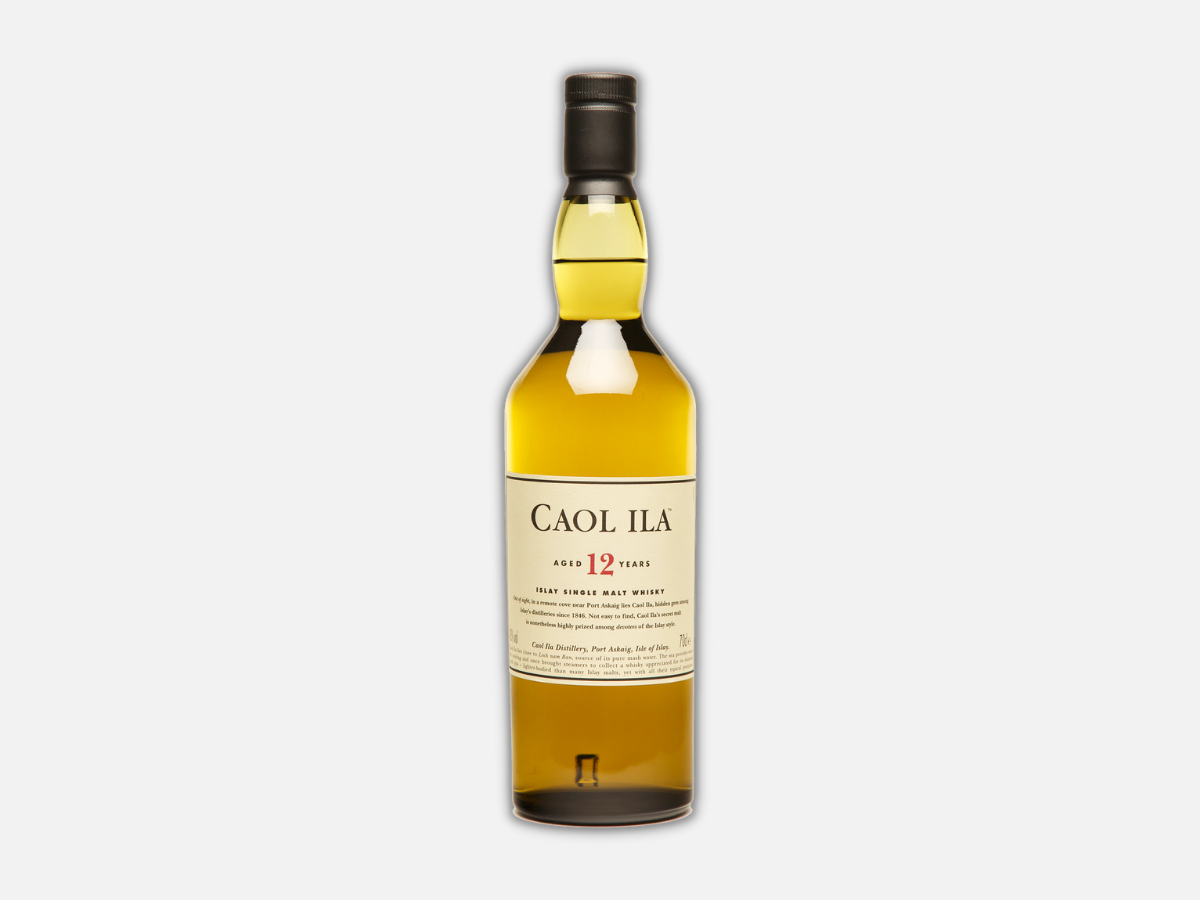
20. Caol Ila 12 Year Old
Price: from AU$109.00
| Pros | Cons |
| It’s on the lighter end of the Islay single-malt spectrum but it still embodies the chimney-sucking goodness that we’ve come to love from the region. One of our favourites for cold weather. | One could argue there are more pure expressions that emboy the region better at a cheaper price e.g. Lagavulin. |
Why did we put Caol Ila on the list? Because we’re all about that smoke, ’bout that smoke. We know it’s an acquired taste, but we still think less of you if you don’t like it. Just kidding—we have nothing against all you peat-haters out there. Everyone else, start picking up what this long-running Scotch whisky brand is throwing down. You’ll be glad you did.
Region: Islay
Founded in: 1846
Best-known expression: 12 Year Old
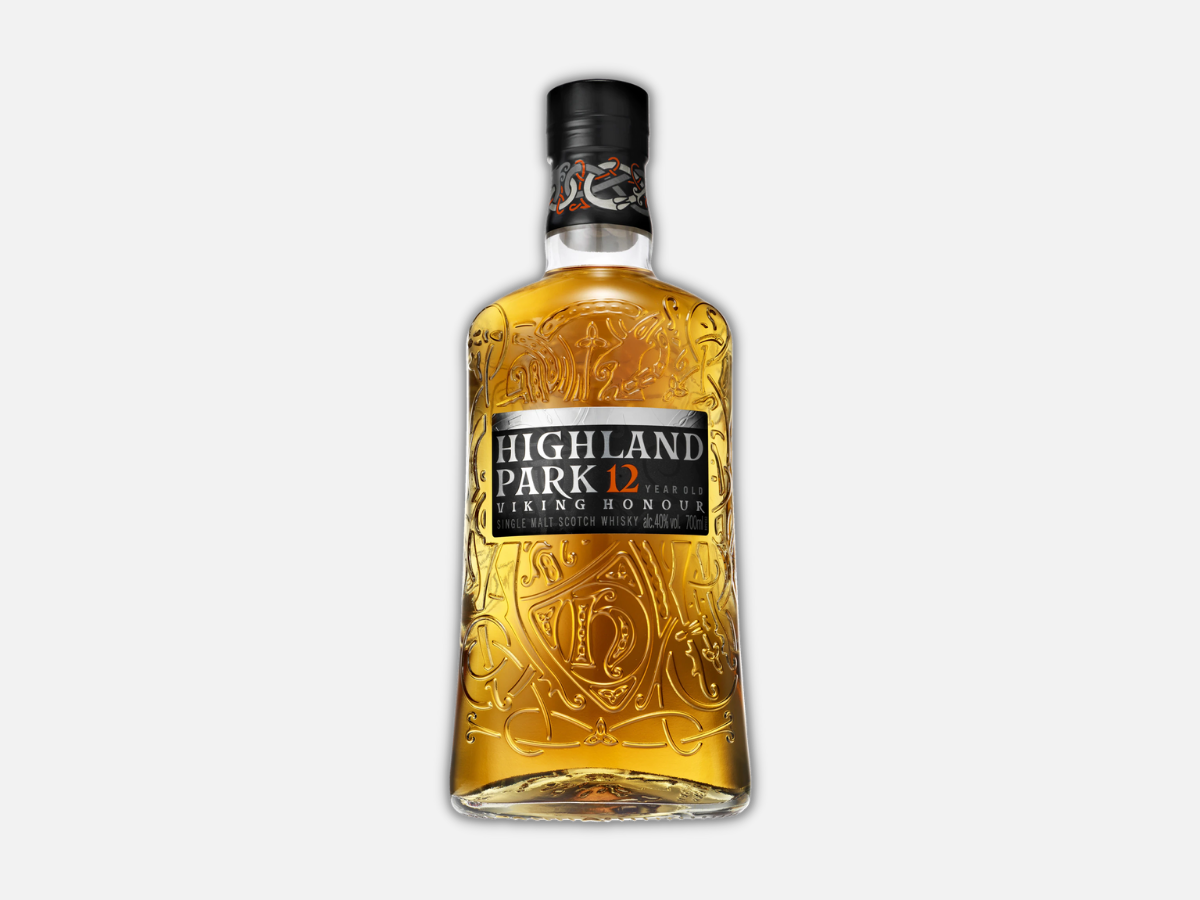
21. Highland Park 12 Year Old
Price: from AU$109.99
| Pros | Cons |
| It might be another cookie-cutter Scotch, but that doesn’t mean it’s any less enjoyable with plenty of vanilla, honey, and pepper on the finish. Relatively affordable and a great alternative to Glen Livet when you find a bottle on sale. | Floral flavours aren’t suitable for every palate and they’re lurking from the nose to the finish in this bottle. |
The northernmost single-malt Scotch whisky distillery is also one of the best. Highland Park hails from the archipelago of Orkney, where the winds are fierce and the weather is temperate. They make brilliant use of their surroundings, smoking hand-malted barley over local peat, resulting in a distinctive flavour profile. In 1997, it introduced an 18-year expression and the world of whisky has never been quite the same. To put it another way: this stuff is gooooood. Unfortunately, it’s also really expensive, which is why you should stick with the superb 12-year until that big bonus check comes in.
Region: Island
Founded in: 1798
Best-known expression: 12 Year
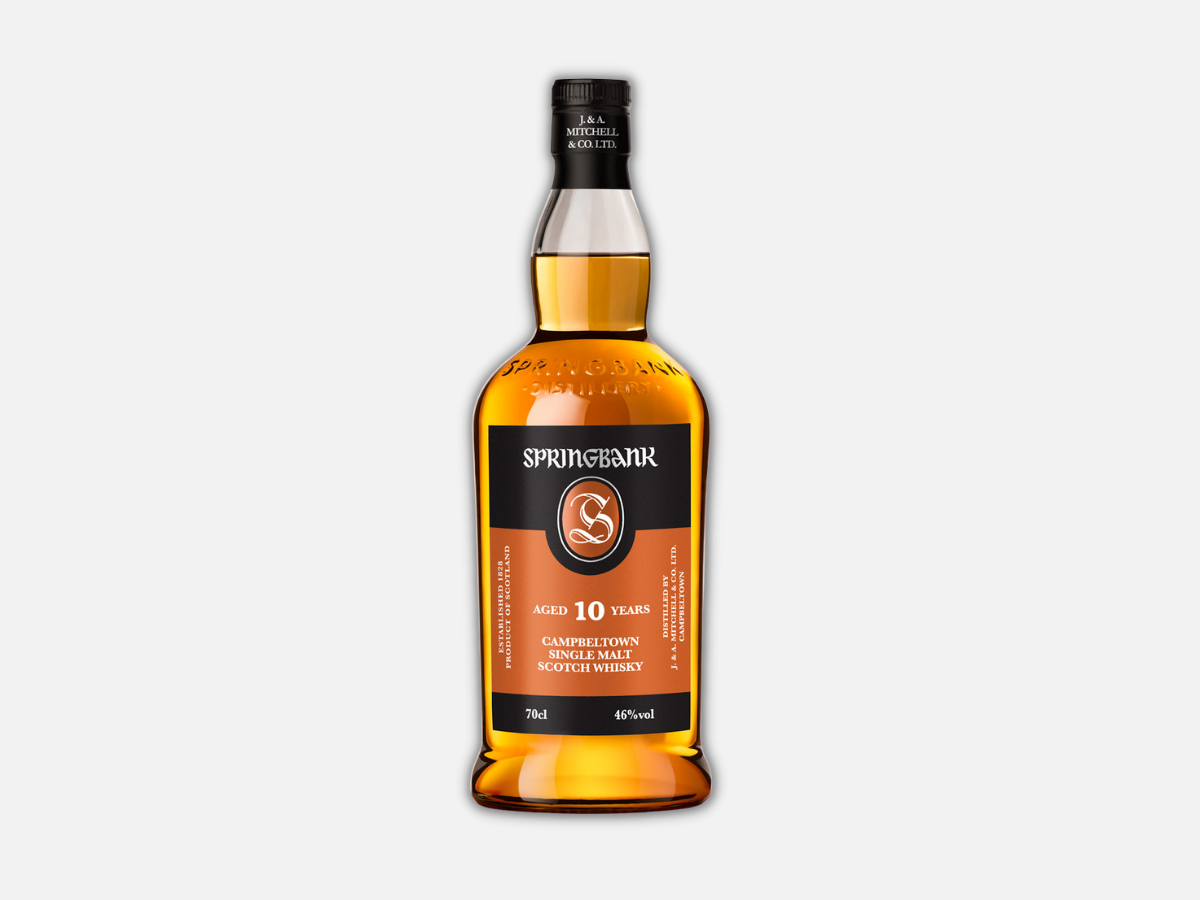
22. Springbank 10 Year Old
Price: from AU$250
| Pros | Cons |
| Funky, aromatic, and rare. It’s for these three reasons that Springbank 10 remains one of our favourites. That’s not to mention the creamy bourbon vanilla. Simply exceptional for a 10 year old, age doesn’t tell you the full story. | Very hard to find in Australia and when you do, expect to pay a pretty penny to taste whisky from Scotland’s oldest independent distillery. |
Family-owned and operated, Springbank is Scotland’s oldest independent distillery and one of the last brands standing in the once-thriving region of Campbeltown. The standard 10-year single malt Scotch whisky is distilled 2.5 times and mildly peated, leading to a wonderfully diverse profile. A hard-working brand if there ever was one, it performs 100% of the production (malting, ageing, bottling, etc) on-site.
Region: Campbeltown
Founded in: 1828
Best-known expression: 10 Year
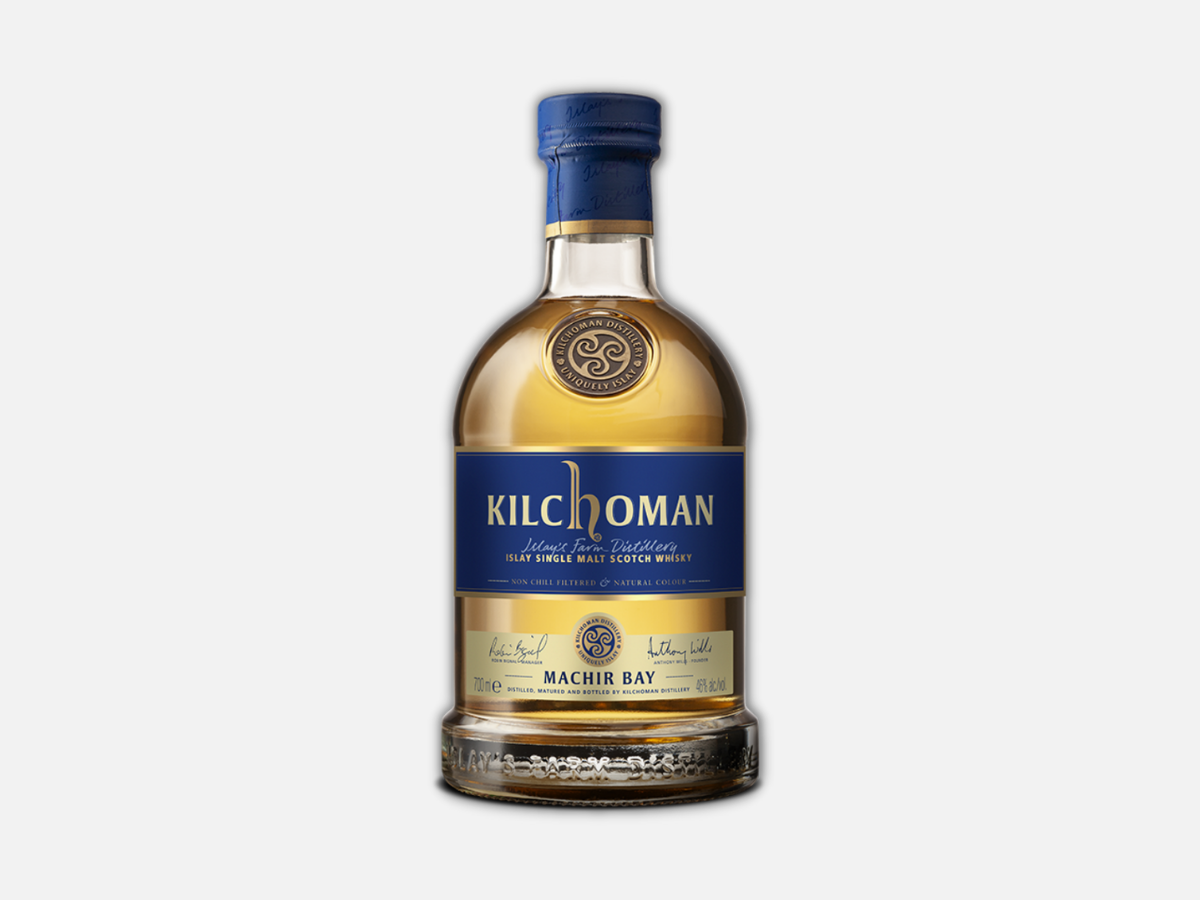
23. Kilchoman Machir Bay
Price: from AU$99.99
| Pros | Cons |
| This signature peated expression shines with maturation in both ex-bourbon barrels and Oloroso Sherry butts. It ticks all the boxes for us: sherry, bourbon, sweetness, smoke, Islay, balance, etc. | Since we last tried this expression they seem to have turned up the smoke a notch messing with the balance a little and adding tang and pepper. |
The first new distillery to be built on the island of Islay in 124 years, Kilchoman has come a long way in precious little time. As the owner of nearby Rockside Farm, the brand oversees every single aspect of production, going from barley to bottle. The 100% Islay series, in particular, represents grain-to-glass in the truest sense of the concept. We expect more great things from this veritable newcomer.
Region: Islay
Founded in: 2005
Best-known expression: Machir Bay
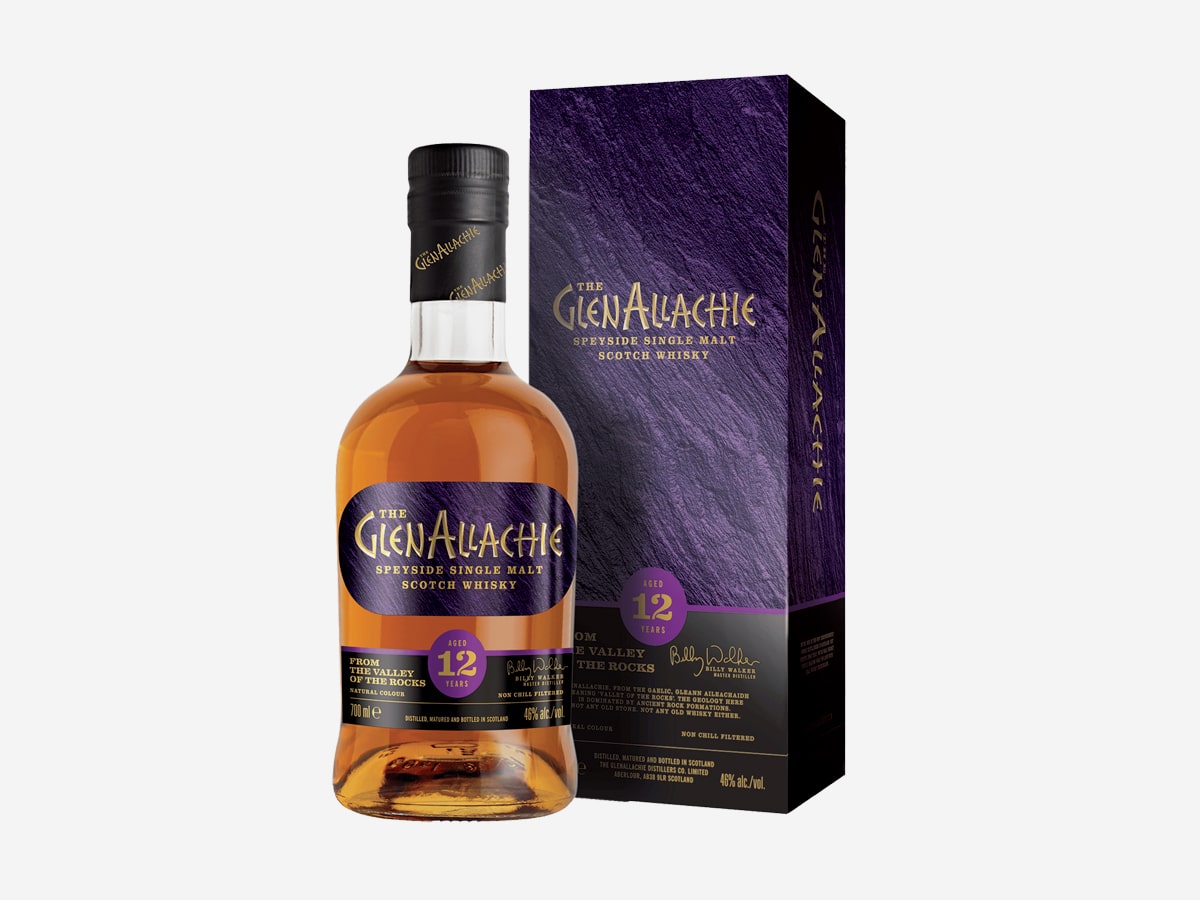
24. GlenAllachie 12 Year Old Single Malt
Price: from AU$114.95
| Pros | Cons |
| Great if you love sweetness, fruit, and red wine on the nose and palate. It’s bottled at 46% ABV which makes it spicy, but it’s raw, rich, and natural in colour making it the perfect mid-range whisky. | It’s hard to find fault in a whisky this smooth, buttery, and rich. If we had to point the finger at something it’s not particularly fresh on the nose, but that comes with the turf. |
While it might be the most familiar name, the unique distillery is actually one of the world’s best. Previously, the distillery mainly produced whisky for blends, however, in recent years, Glenallachie has undergone some serious changes, introducing several fruity, single-malt expressions like the 12-year we’ve selected here.
According to Shuttleworth, Glenallachie is a hidden gem of Scotland, offering an outstanding portfolio of spirits, backed by some very famous names. “Previously owned by Chivas Brothers and recently bought by a group including Billy Walker, Glenallachie is putting out some of the most exciting whisky in Speyside,” he says. It all comes thanks to a vast library of 50,000 casks dating back to the ’70s, a leading cask program and Walker’s unparalleled expertise.”
Region: Speyside
Founded in: 1967
Best-known expression: Glenallachie 12-Year-Old
Why You Should Trust Our List
While Man of Many are sticklers for research and certainly know a thing or two about Scotch whisky, we also turned to the experts in compiling our list. We treated personal experience and online research as primary sources, while also speaking to experts in the industry for their commentary, e.g. Emma Cookson (an award-winning bartender in Australia), Aaron Shuttleworth, and The Whisky List’s very own Oliver Maruda.
Alternatives to Scotch Whisky
If you’re looking for alternatives to Scotch whisky, we recommend looking at Japan, Ireland, and Australia. Japanese whisky has grown exponentially to the point some of their brand’s bottles are fetching world-record pricing for rarity and quality. Ireland has made a name for itself by offering a more relaxed ruleset compared to its Scottish friends and the result is a new age of whisky that experiments with younger age statements barreled in sweet wine barrels. The same can be said for the best Australian whisky brands, specifically those from Tasmania that have won awards against some of the world’s best.
Explore Different Global Regions
Explore Different Types of Whisky
If you’d like to sample a selection of fine whisky before you commit to purchasing a full bottle, you’ll find plenty of distilleries offer whisky tasting sets at very reasonable prices.
